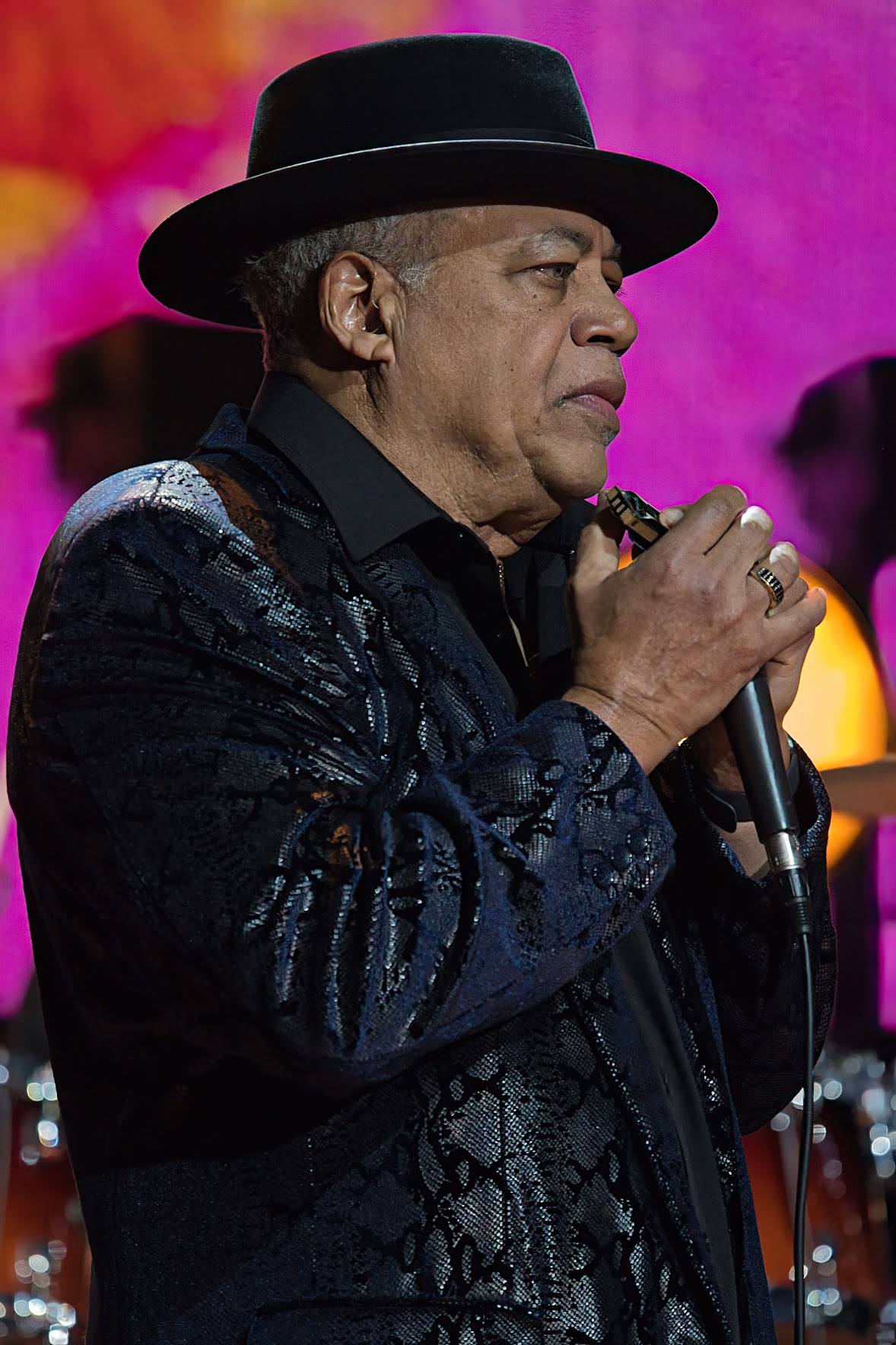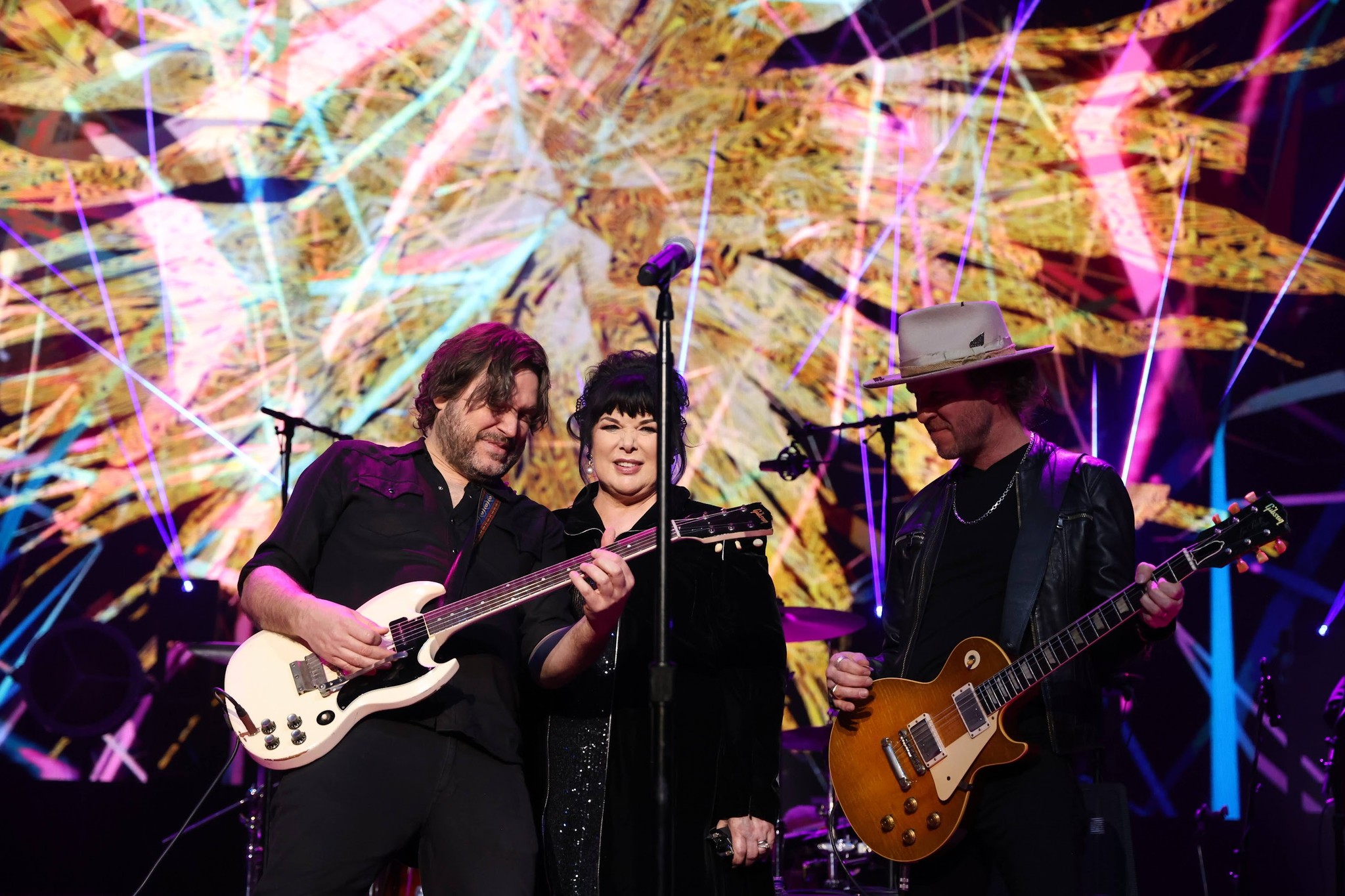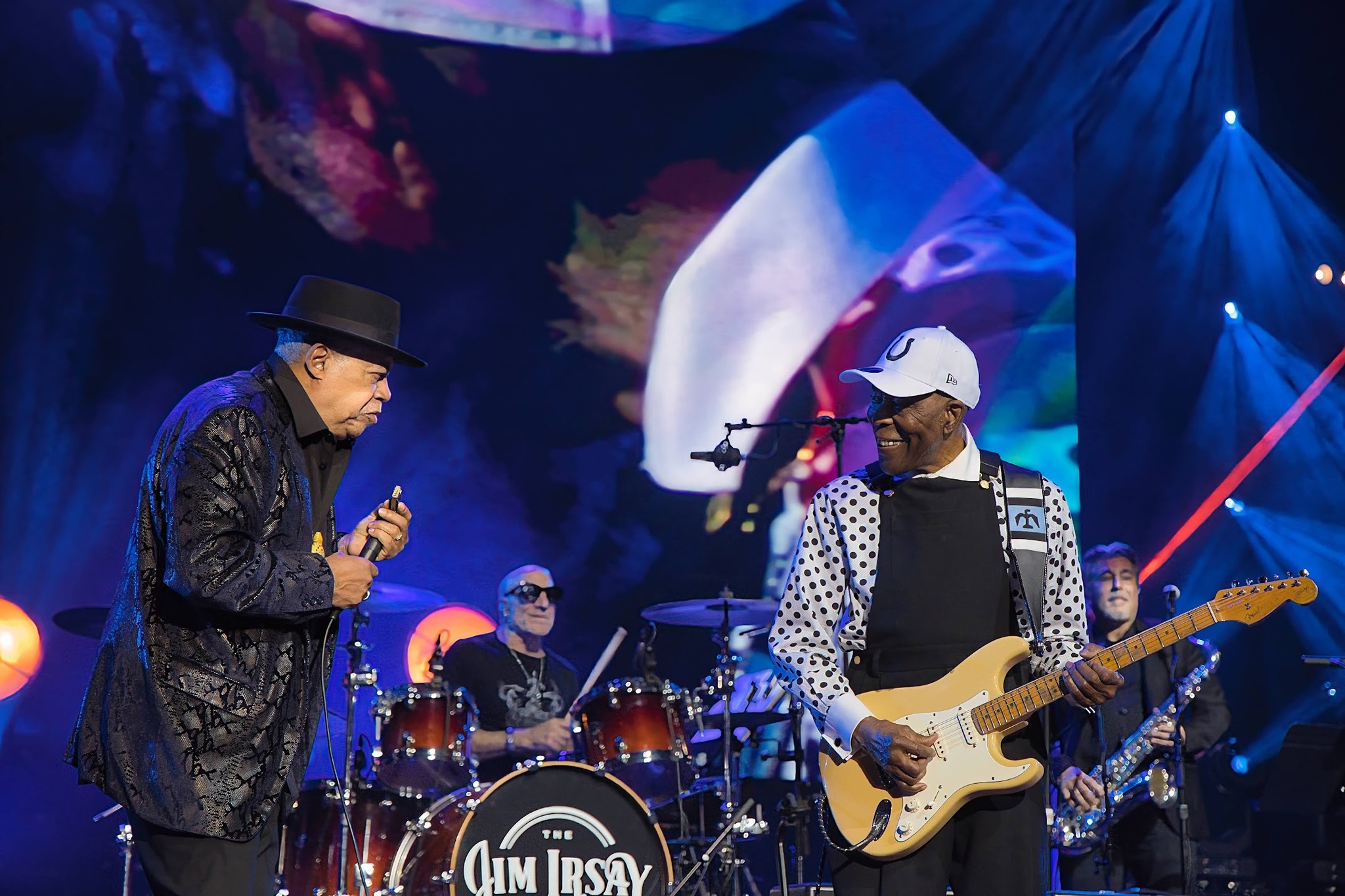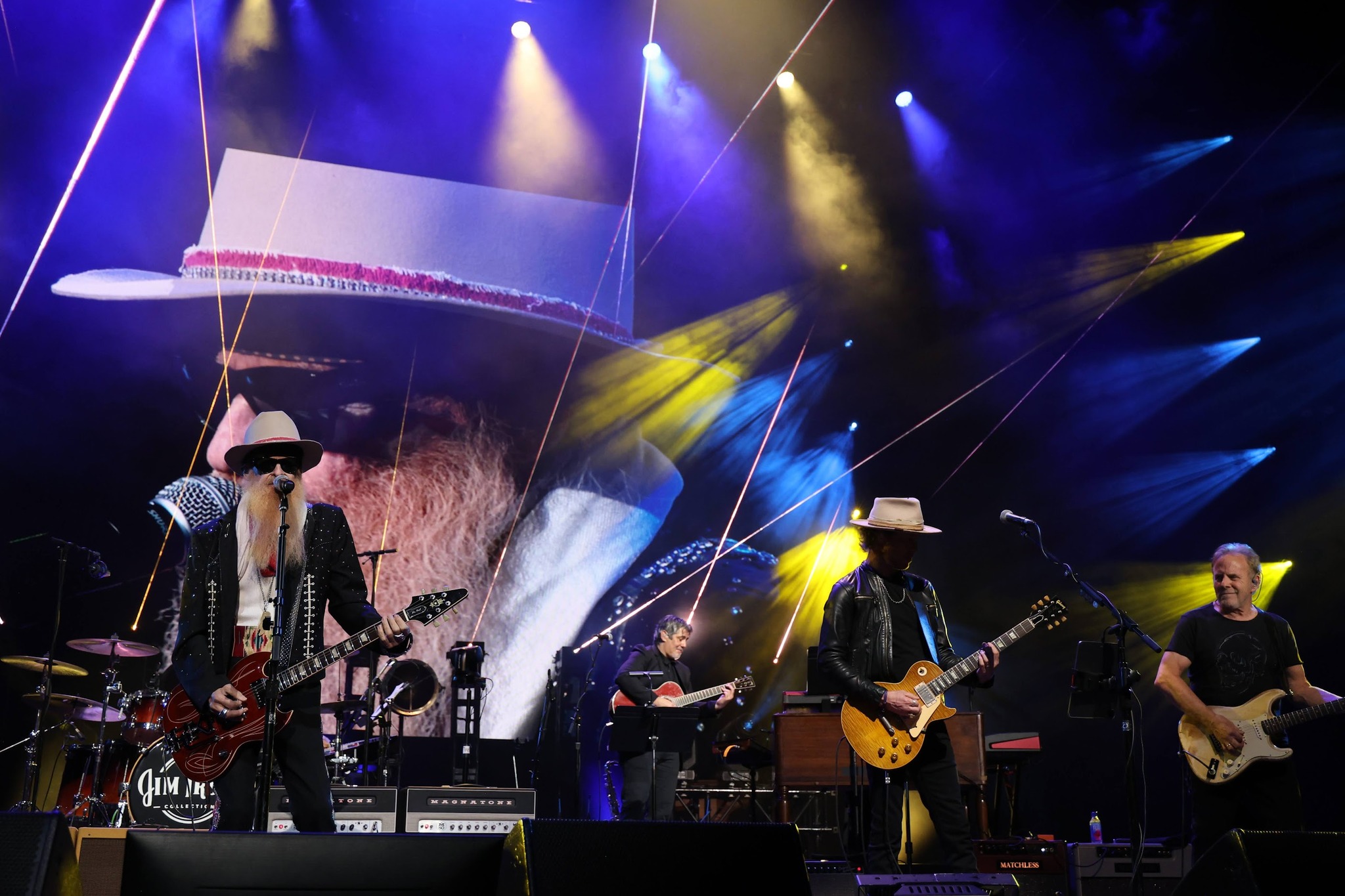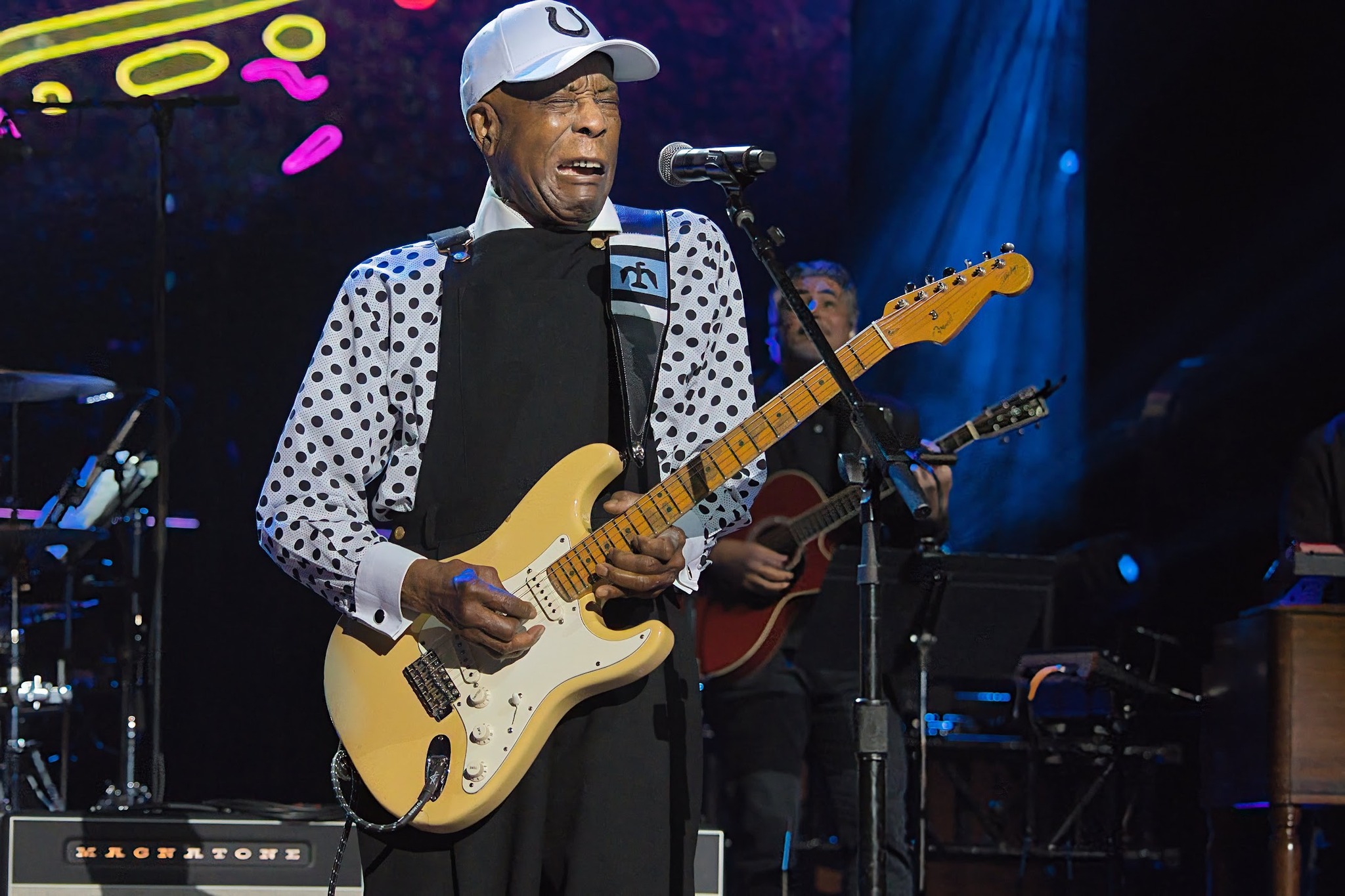On Thursday, January 11th, the Shrine Expo Hall in Los Angeles was transformed into a treasure trove of rock and roll, pop culture, and American history. The occasion was a special one-day exhibition of the collection of Jim Irsay, owner of the N.F.L.'s Indianapolis Colts and a passionate collector of music memorabilia, American pop culture, and historical artifacts.
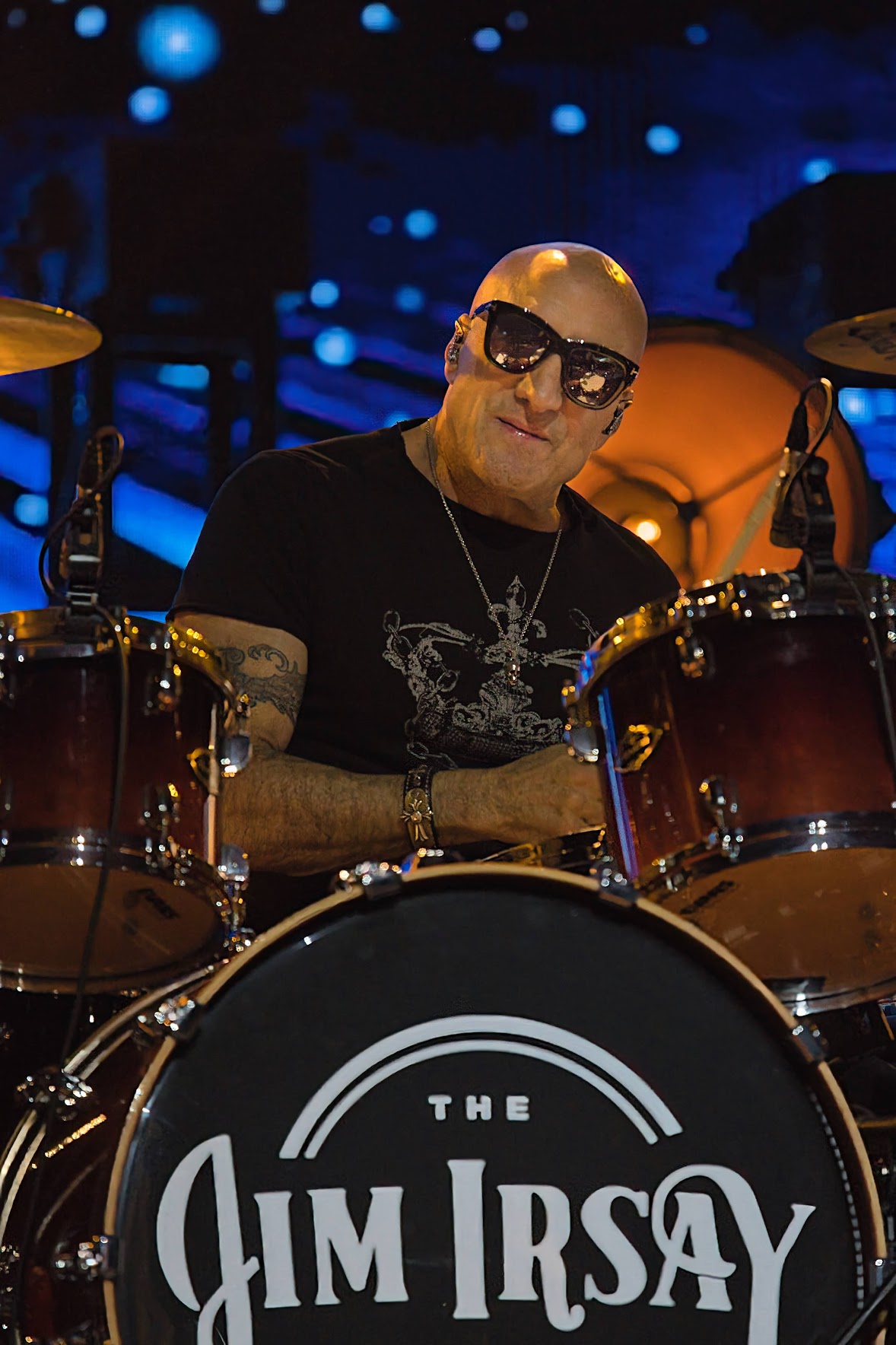
The exhibition featured a mind-boggling array of items, from the 1969 Fender Mustang guitar that Kurt Cobain played in Nirvana's "Smells Like Teen Spirit" video to the original manuscript of Jack Kerouac's "On The Road." However, the exhibition's most unique aspect was how Irsay used his collection to bring music history to life.
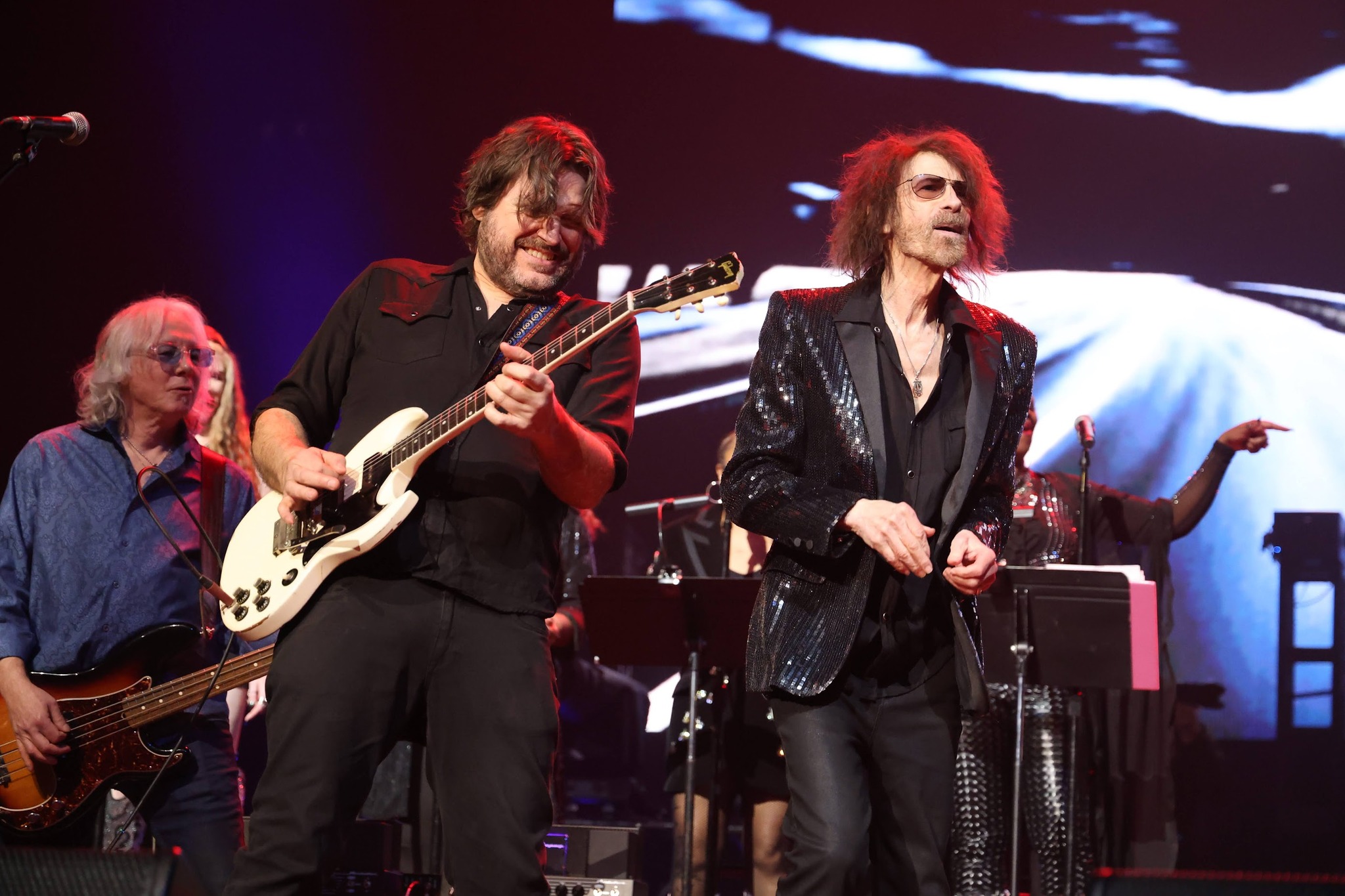
The aging venue, steeped in its own fascinating history, was an exciting choice for the event. Once the crown jewel of Los Angeles entertainment, the world-renowned Shrine Auditorium reigned as the largest indoor auditorium in the world when it opened in 1906 (rising again from the ashes of a 1920 fire). Architects John C. Austin and Abram M. Edelman infused the building with the Moorish heritage of the Masons, while noted theater architect G. Albert Lansburgh crafted the stunning interiors. Boasting nearly 6,500 seats and the continent's largest proscenium stage, the Shrine was the glamorous backdrop for Hollywood's grandest nights, hosting long reigns of the Oscars and Emmys. In 1947, the first Academy Awards dazzled its stage, while the Emmys followed suit, calling the Shrine home for a decade (1997-2007).
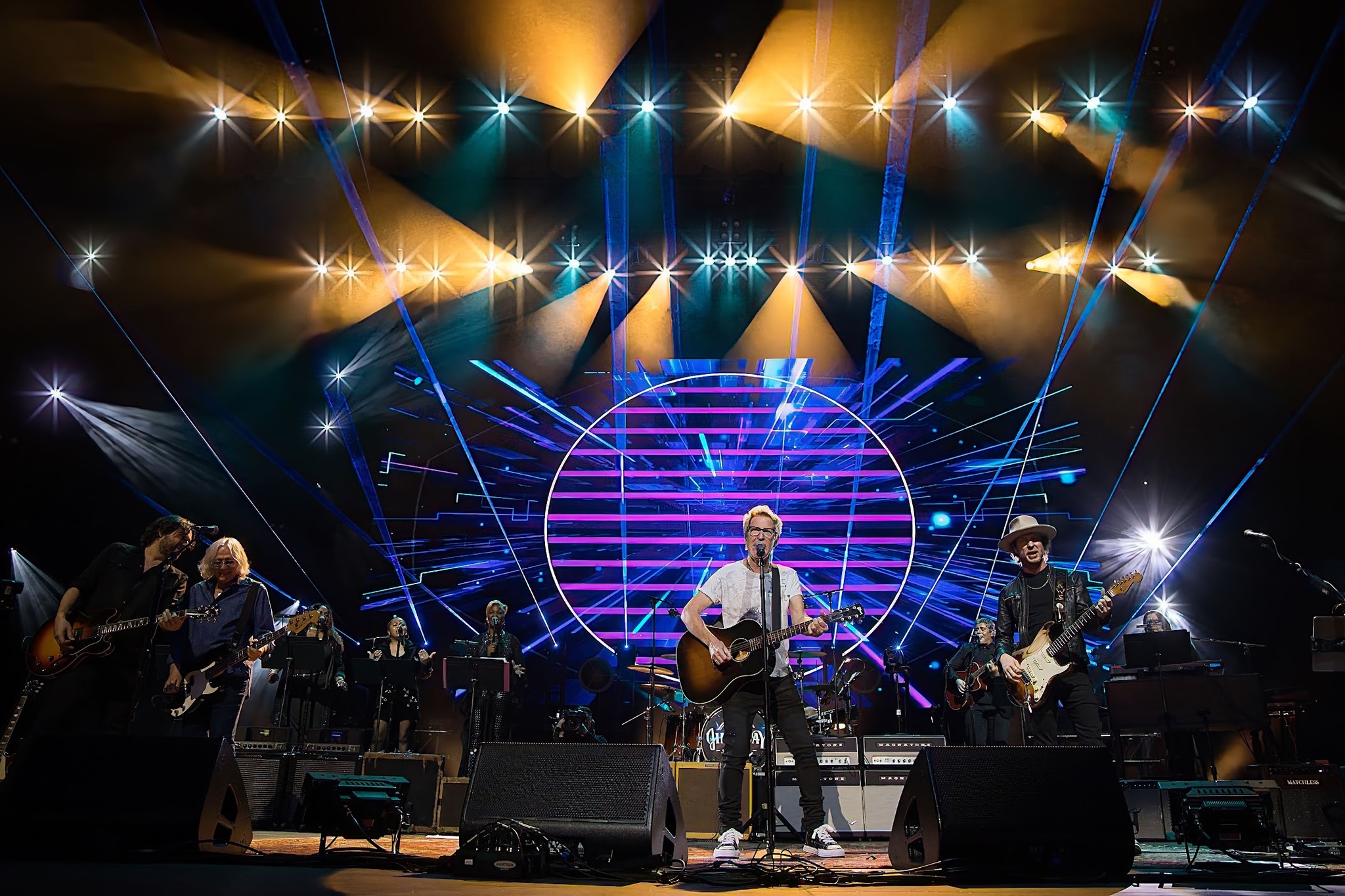
However, the new millennium saw the spotlight shift. Newer venues emerged, and the Shrine found itself outshone. Yet, its legacy endures. Today, it remains a cornerstone of Los Angeles events, welcoming diverse performances and exhibitions. It also fulfills its original purpose as the North American headquarters for the Al Malaikah Temple, a mystical branch of Freemasonry. It was the perfect backdrop for presenting Irsay’s collection, a mini traveling Smithsonian Museum of Americana. But the night of spectacular entertainment featured more than just the exhibition.
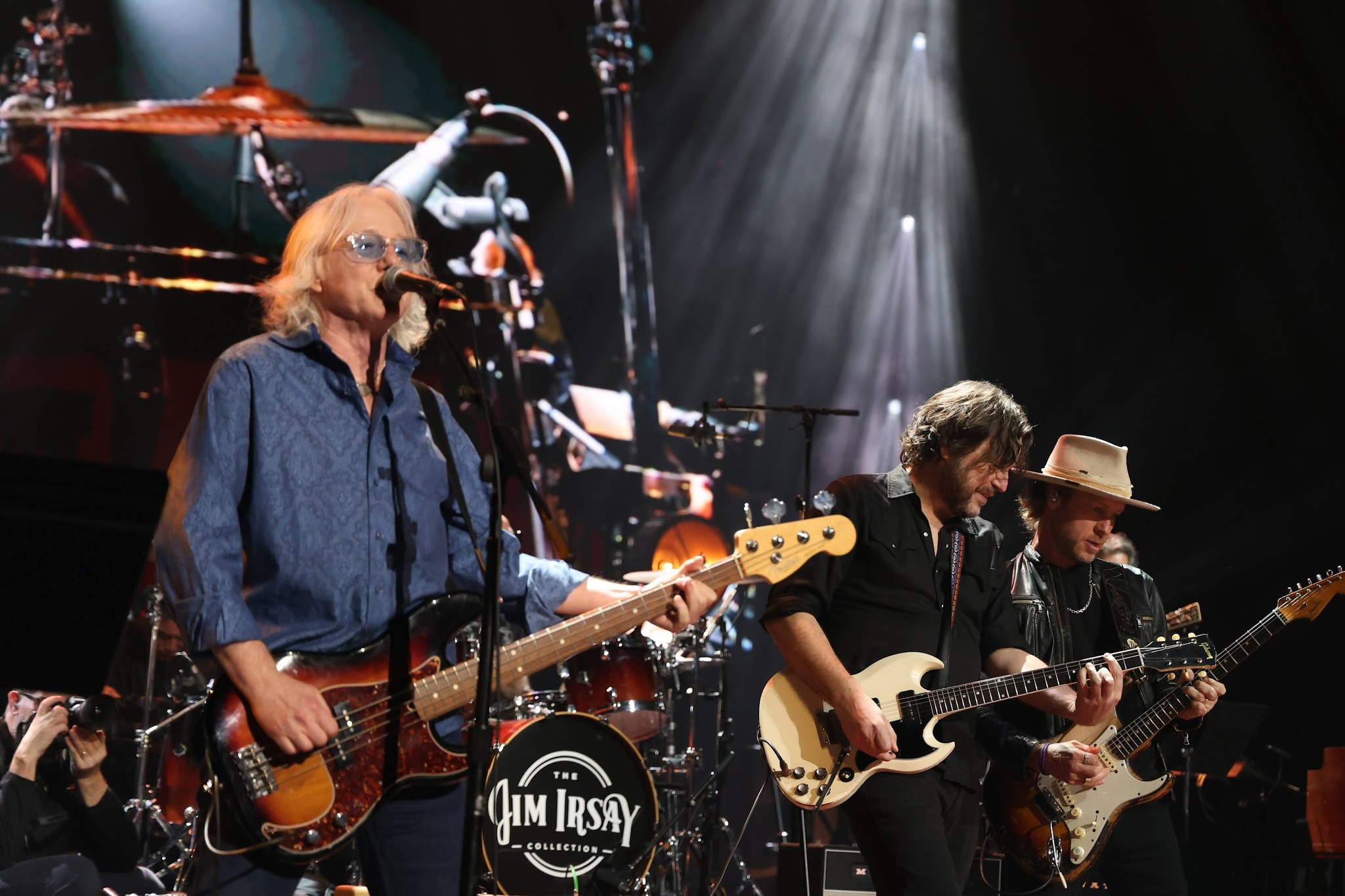
One of the highlights of the evening was a performance by Irsay's all-star band, featuring musicians who have played with some of the biggest names in rock and roll. After a few hours of fans browsing the exhibition, the band took the stage, and they did not disappoint.
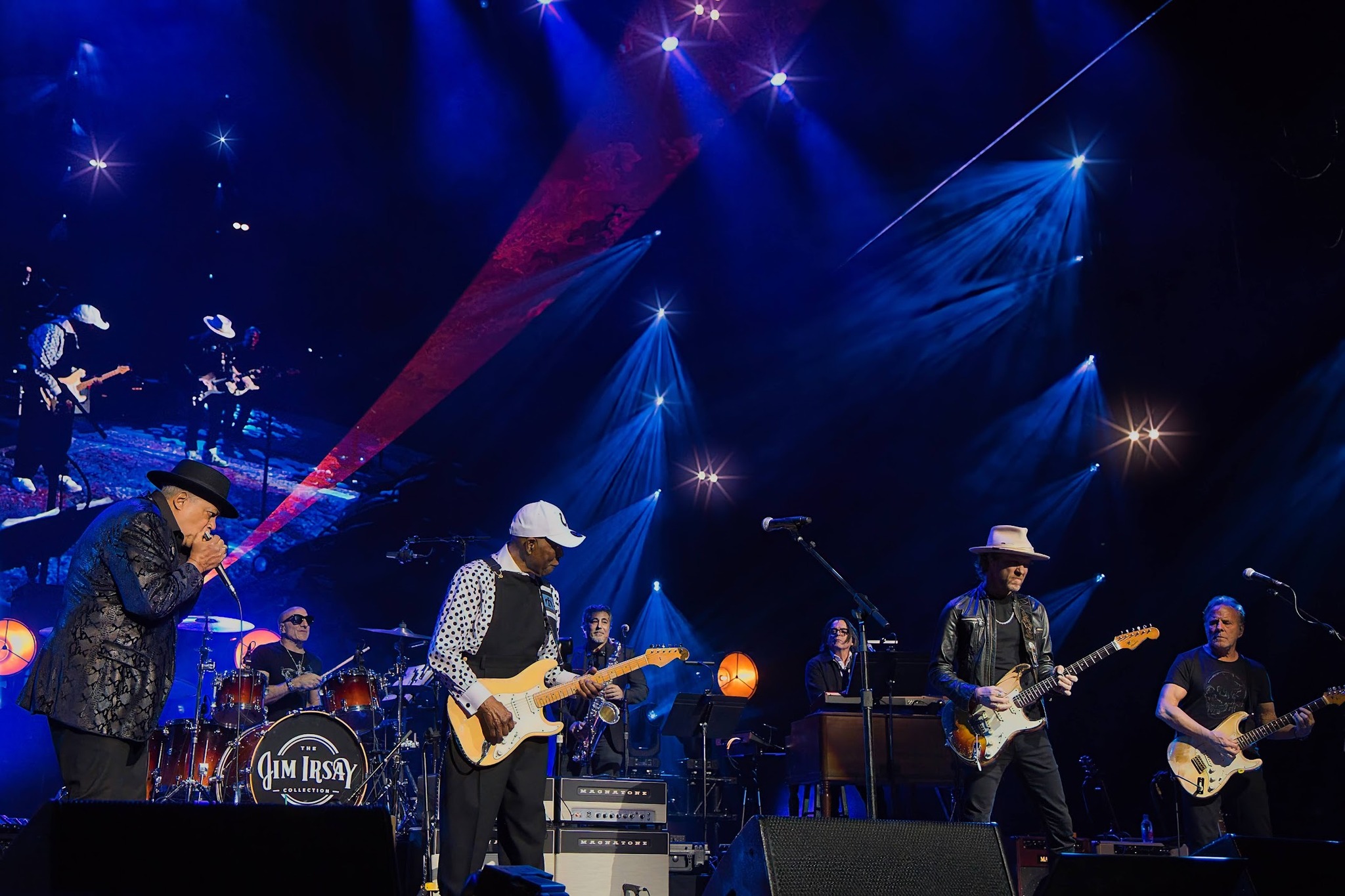
The event was free, but guests were asked to donate to Kicking The Stigma, an initiative to raise awareness about mental health, when they registered. The charity concert was off to a roaring start despite some last-minute hiccups. Jim Irsay, the band's usual guitarist, had to bow out due to illness, along with guest star Stephen Stills. But the show must go on, and Kenny Wayne Shepherd led the all-star band, which included bassist Mike Mills of R.E.M., blazing guitarist Tom Bukovic, session legend Kenny Aronoff on drums, and some of John Mellencamp's crack band members, among others. The original 28-song setlist was pared down to 23, probably due to the absence of Irsay and Stills, but still stretched over several hours of nonstop music.
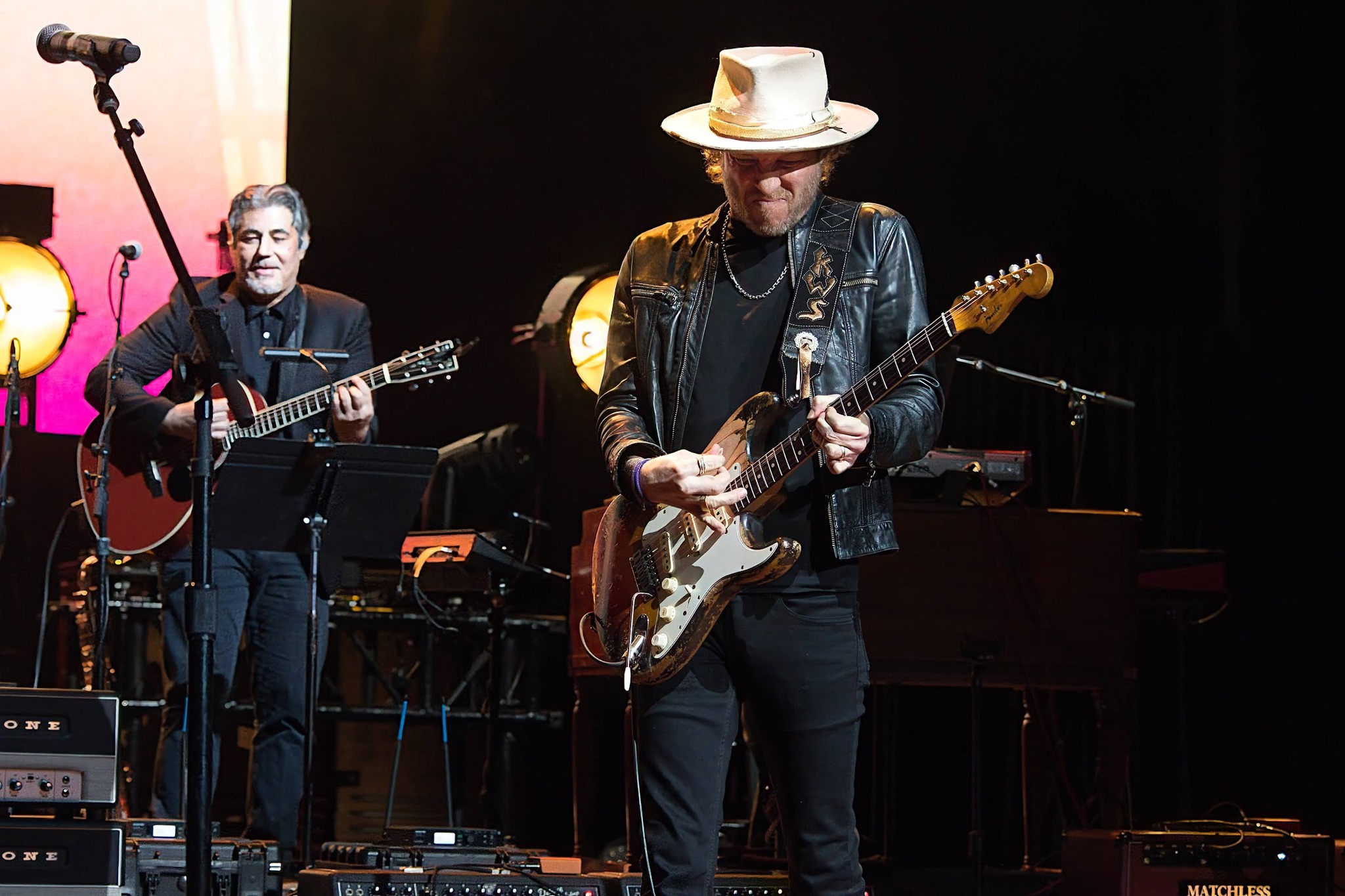
Shepherd kicked things off with a solo set, his gravelly vocals and heartfelt lyrics filling the air. Then, a surprise guest materialized: blues icon Buddy Guy. Looking sharp in his signature dapper overalls and a polka-dotted white shirt with French cuffs, Buddy swaggered onto the stage, guitar in hand. The crowd erupted in cheers as he launched into three soulful blues numbers, including the instantly recognizable "Damn Right, I've Got the Blues." Buddy's electrifying performance was just the beginning of a star-studded evening.
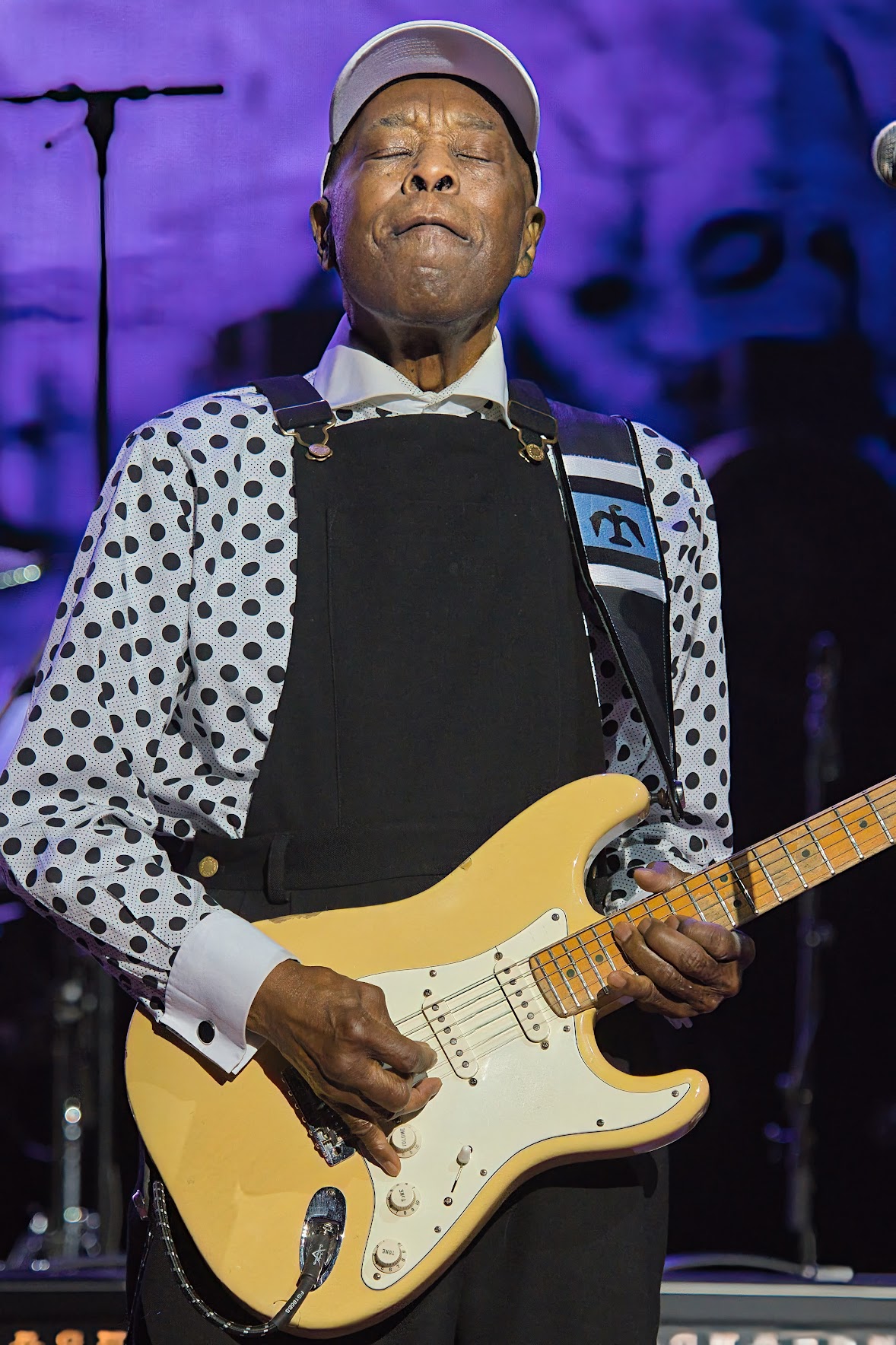
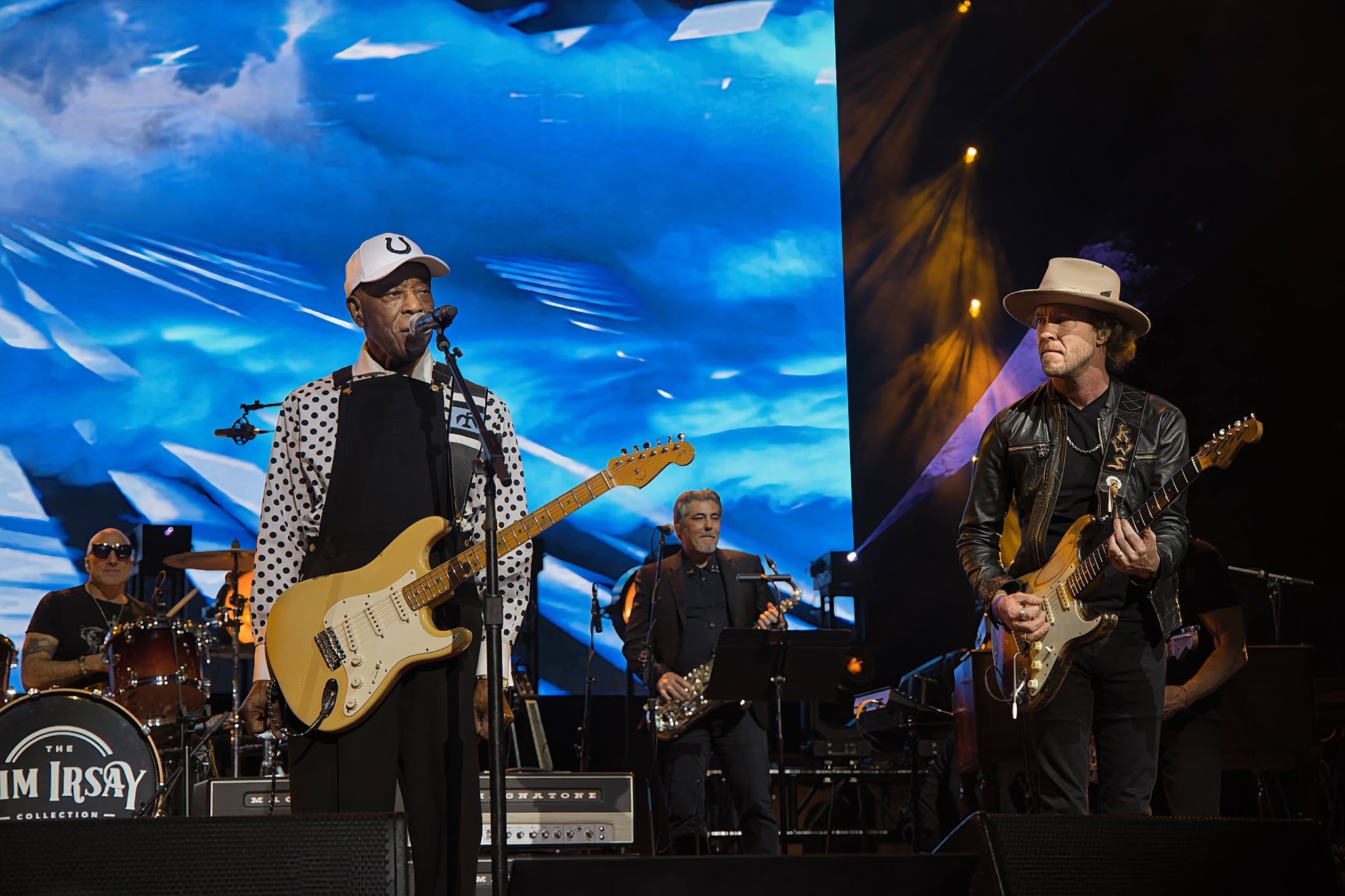
After Buddy Guy triumphantly left the stage, Shepherd resumed lead vocal duties with his tune, "Blue on Black." Then Mike Mills took over vocal duties with a R.E.M. cover of "(Don't Go Back to) Rockville," followed by a cover of R.E.M.'s hit “Superman,” which was originally a B-side hit for The Clique, a late-1960s American sunshine pop band from Austin, Texas.
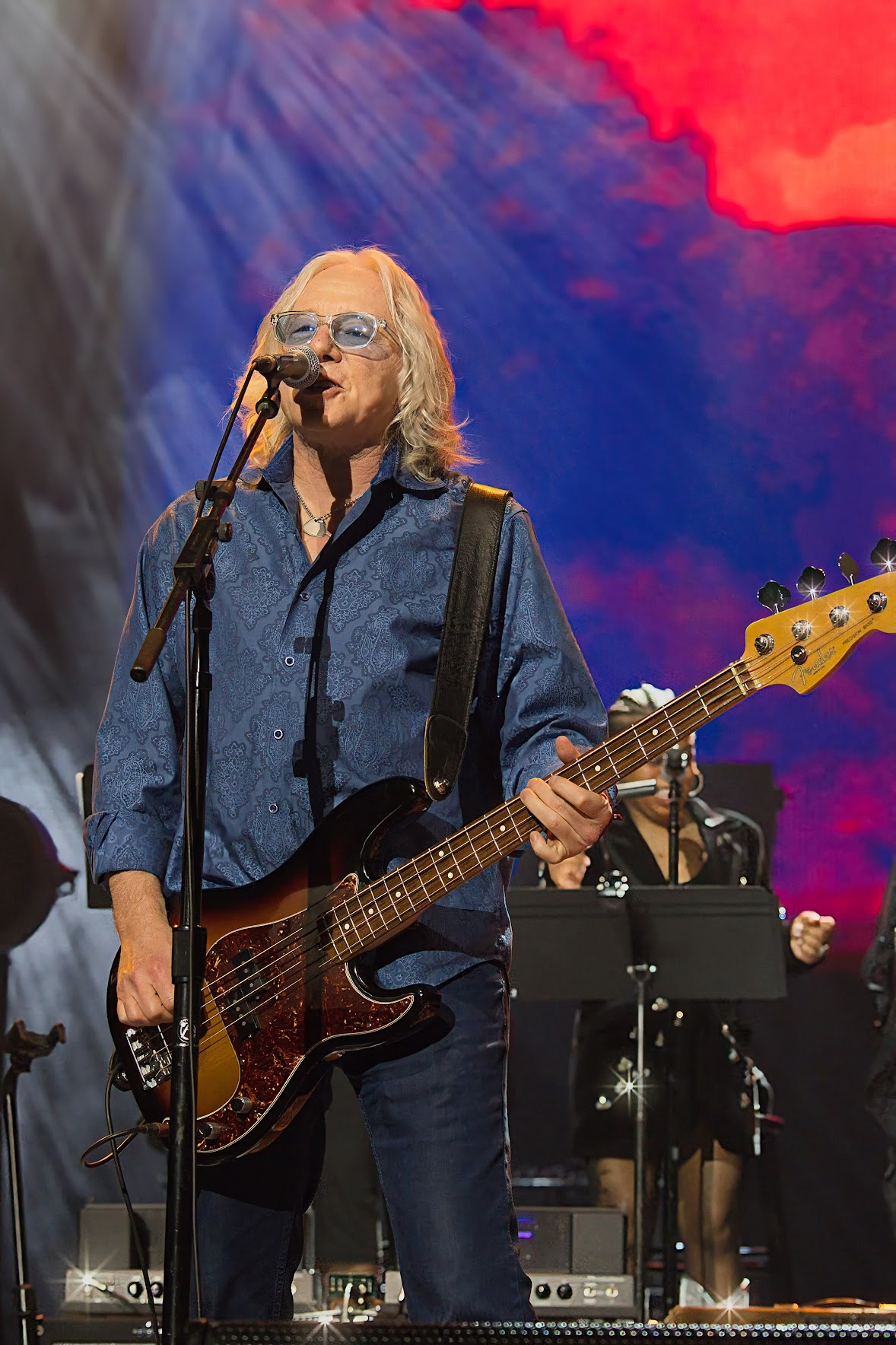
The next tune saw several surprises, including a lead vocal spot by actor Danny Nucci. Jim Irsay's guitar collection isn't just a museum of musical relics; it's a vibrant testament to the power of music to inspire and connect. Within the Shrine Auditorium, amidst glittering display cases housing rock royalty's instruments, one absence spoke volumes about Irsay's unique vision.
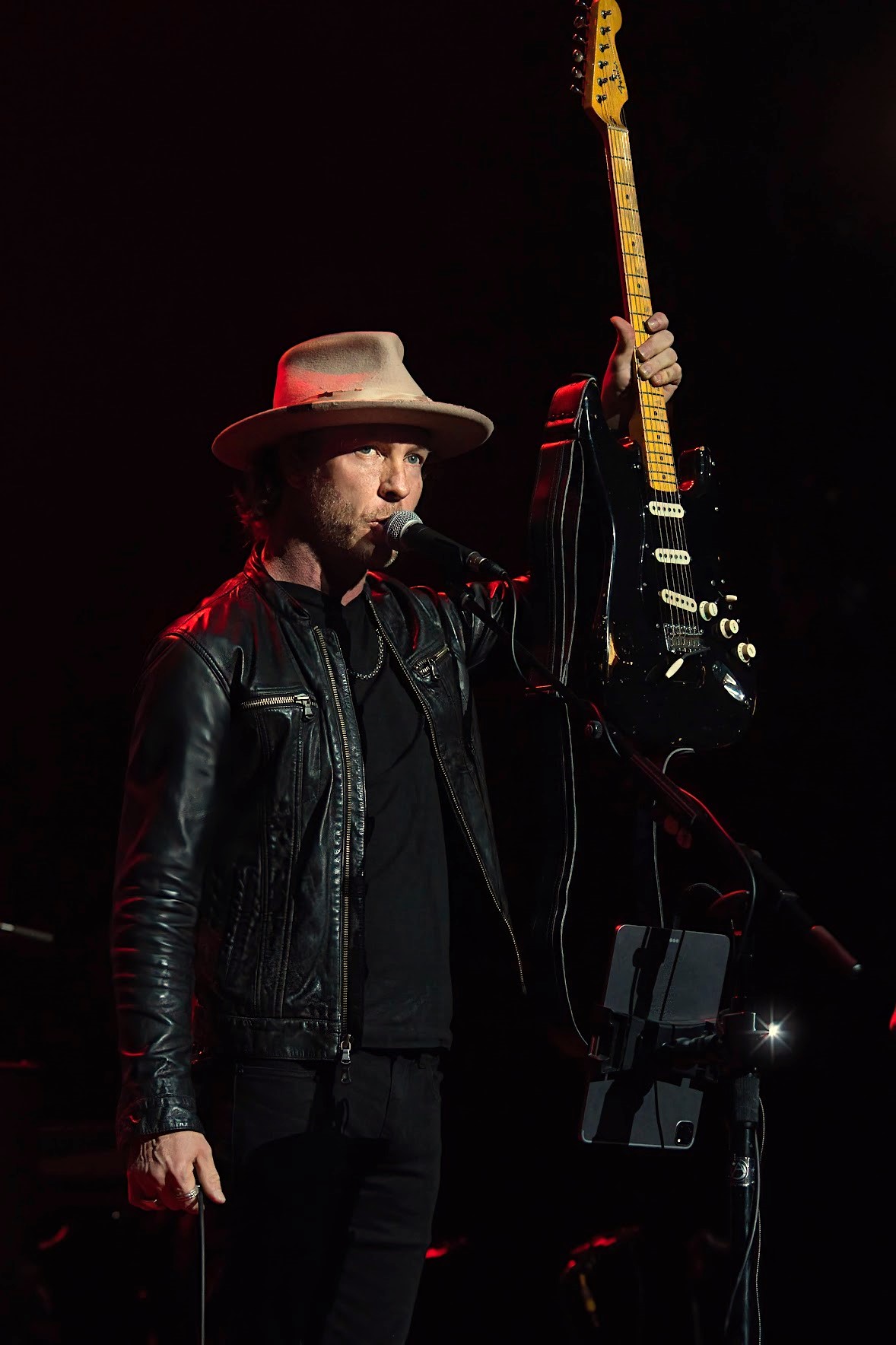
Gone was David Gilmour's famed Black Strat, the 1970 Fender that captivated audiences on Pink Floyd's greatest albums. Purchased by Irsay for a record-breaking $4 million in 2019, it was more than just a collector's item; it was a living piece of musical history.
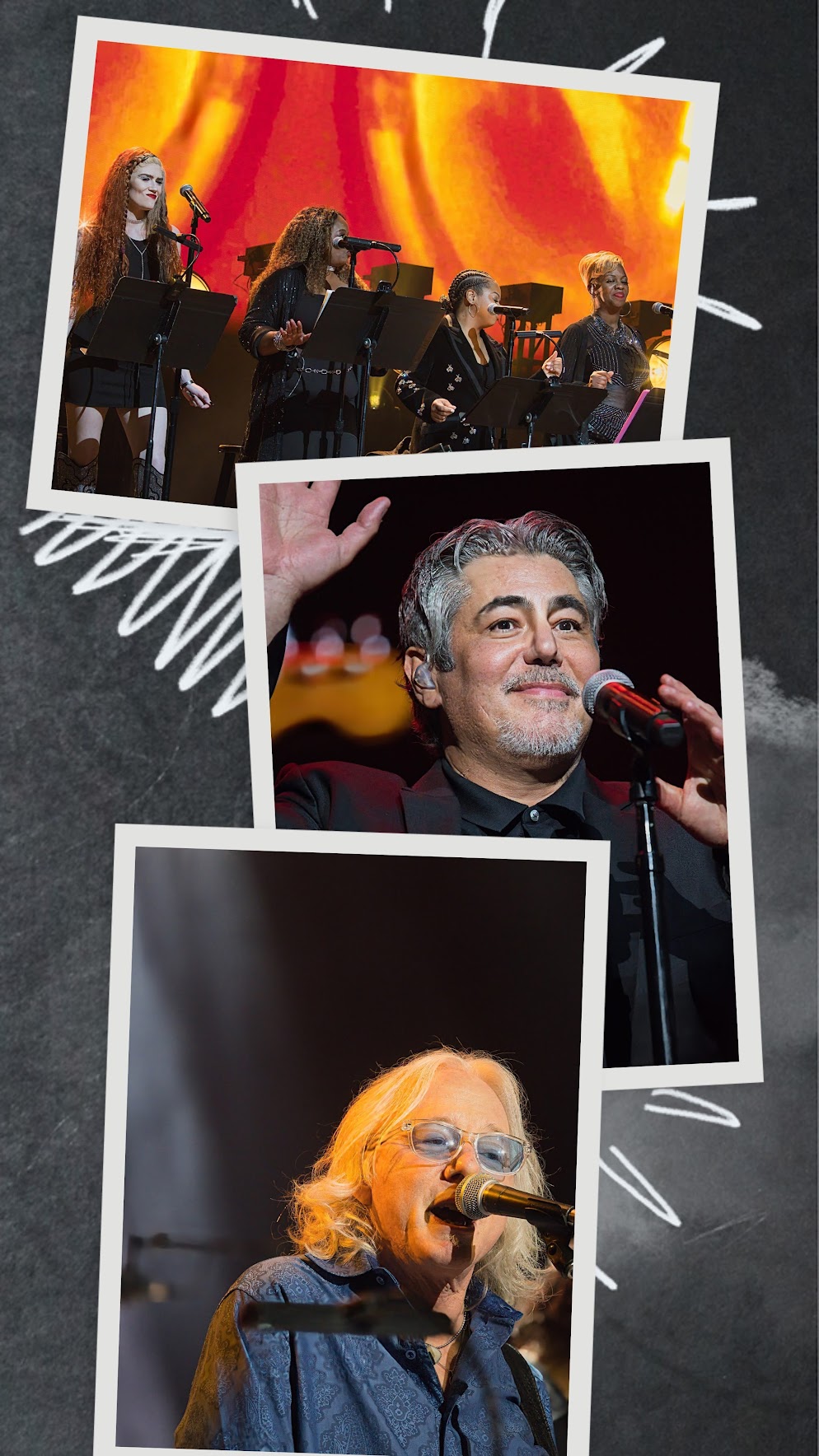
But just because it wasn't on display didn't mean it was silenced. The Black Strat roared to life on the Shrine's stage, wielded by Kenny Wayne Shepherd, leading Irsay's all-star touring band. The energy crackled as fans witnessed iconic instruments not just admired but played, their music filling the air with the spirit of legends past and present.
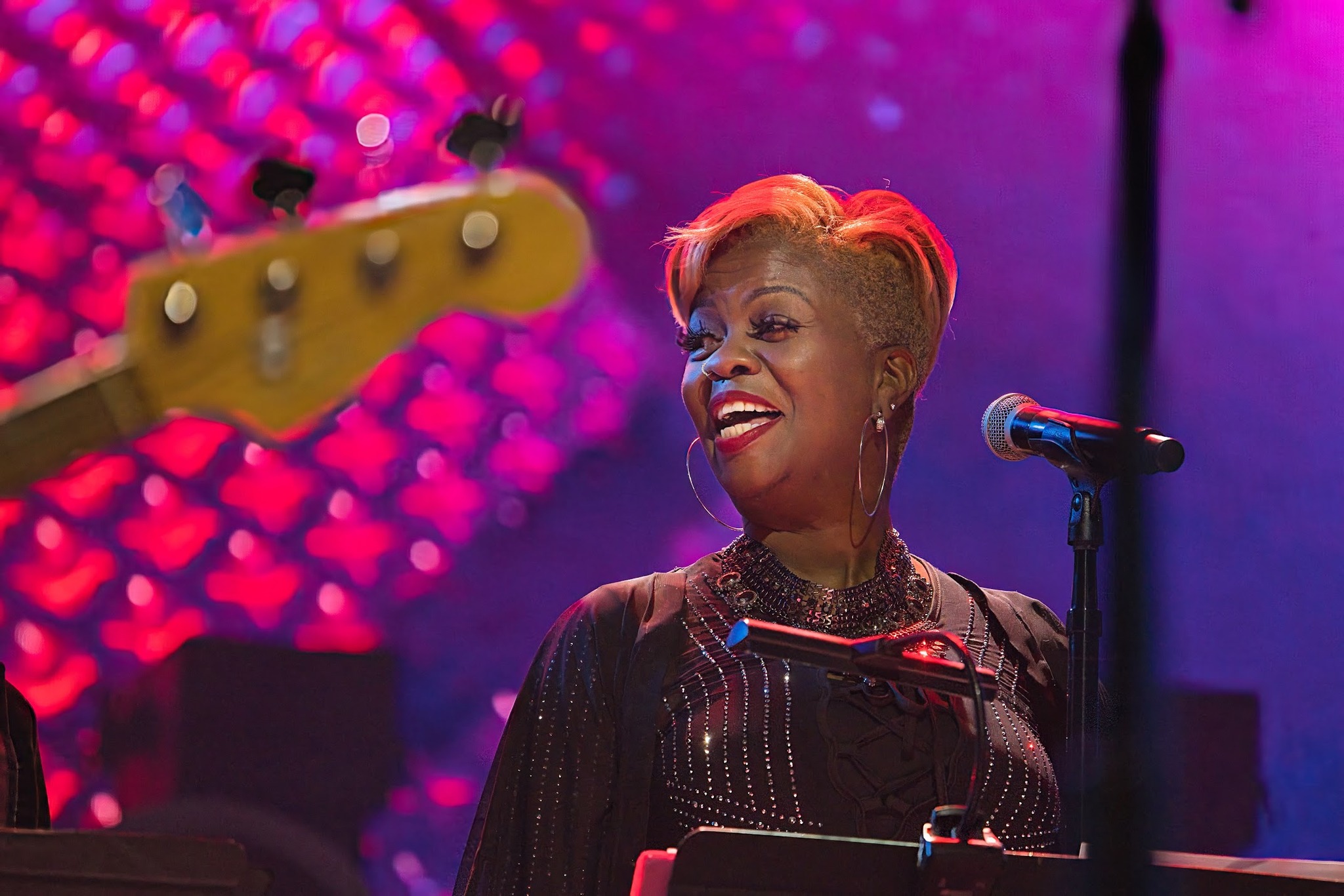
"With these instruments," declared Shepherd, the band's conductor for the night, "you can buy something like the Mona Lisa, and all you can do is hang it on the wall and look at it. But these? You can take them down and still make art with them."
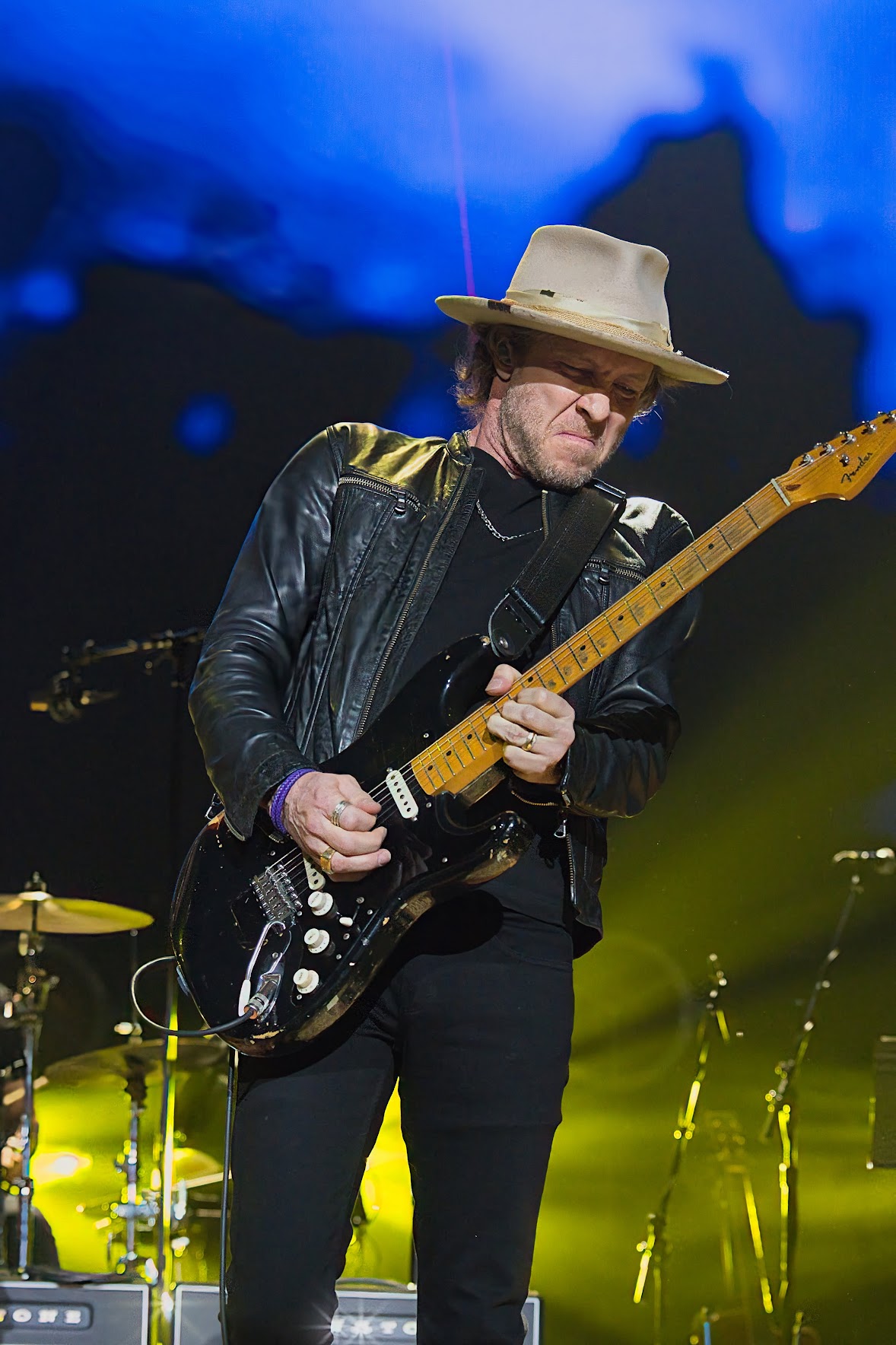
And art they proceeded to make. Pink Floyd's "Have A Cigar" pulsated with life, actor-musician Danny Nucci channeling Roger Waters' growl. "Comfortably Numb" soared, its haunting melody shared by R.E.M.'s Mike Mills and Tom Bukovic, their voices intertwining like Gilmour and David Wright. But the true star was the Black Strat, its ebony body resonating with Shepherd's masterful touch, each note a shimmering echo of countless stadium anthems and midnight jams.
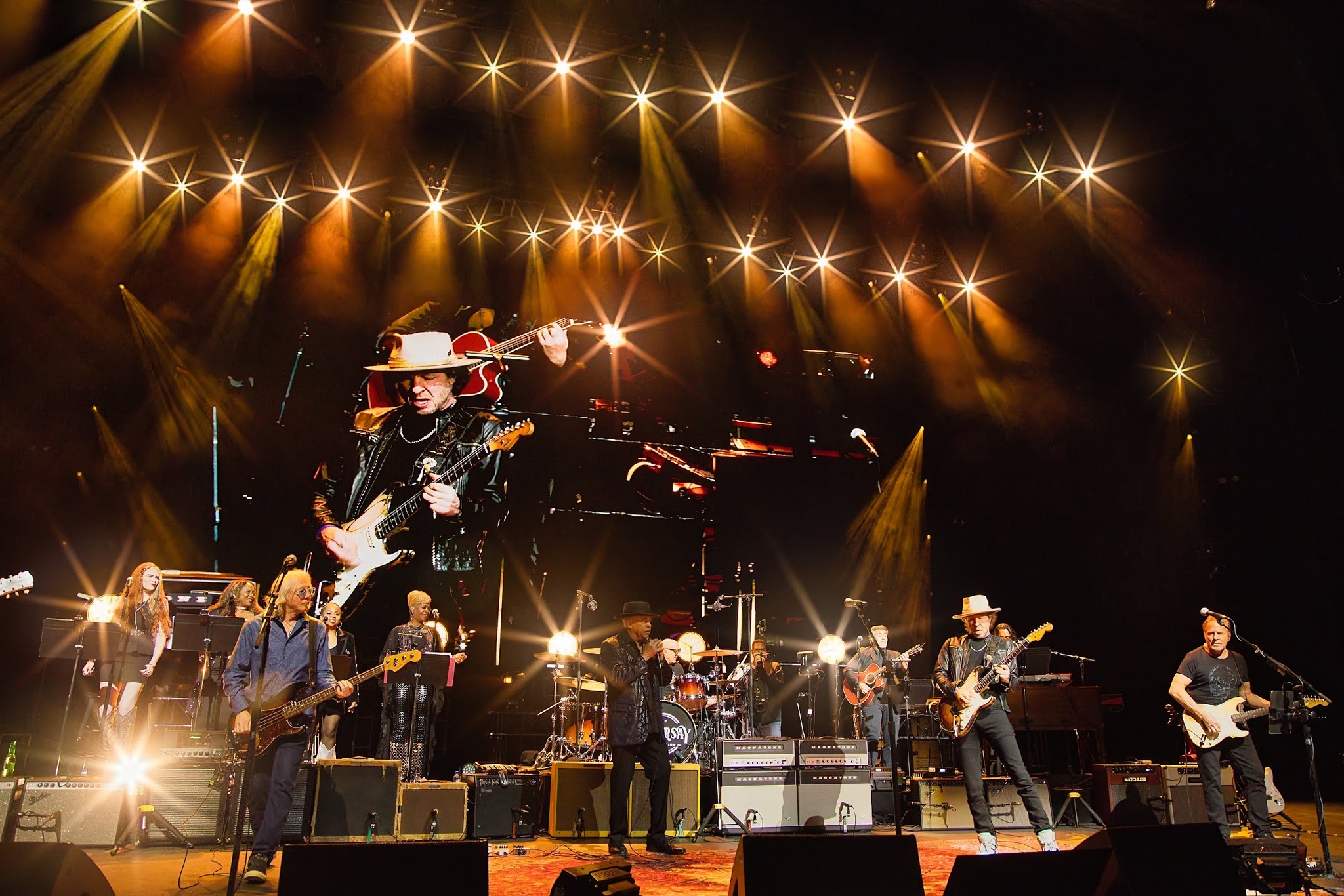
In Irsay's hands, his collection becomes more than a museum; it's a musical bridge, connecting generations of artists and fans through the shared language of rock. The missing piece wasn't a gap but a promise – a reminder that the music's soul lives not just in its history but in the hands of those who dare to keep it alive.
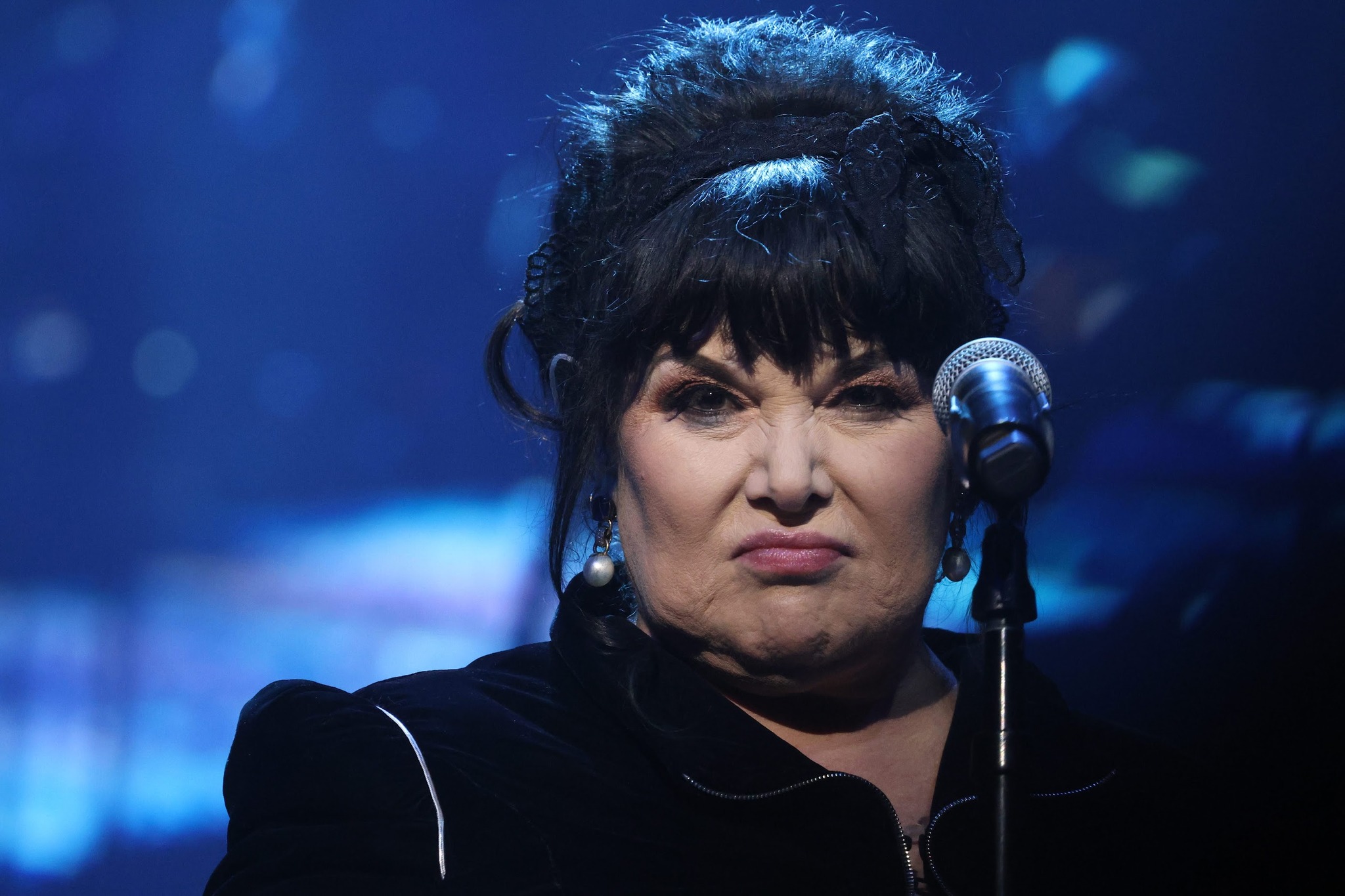
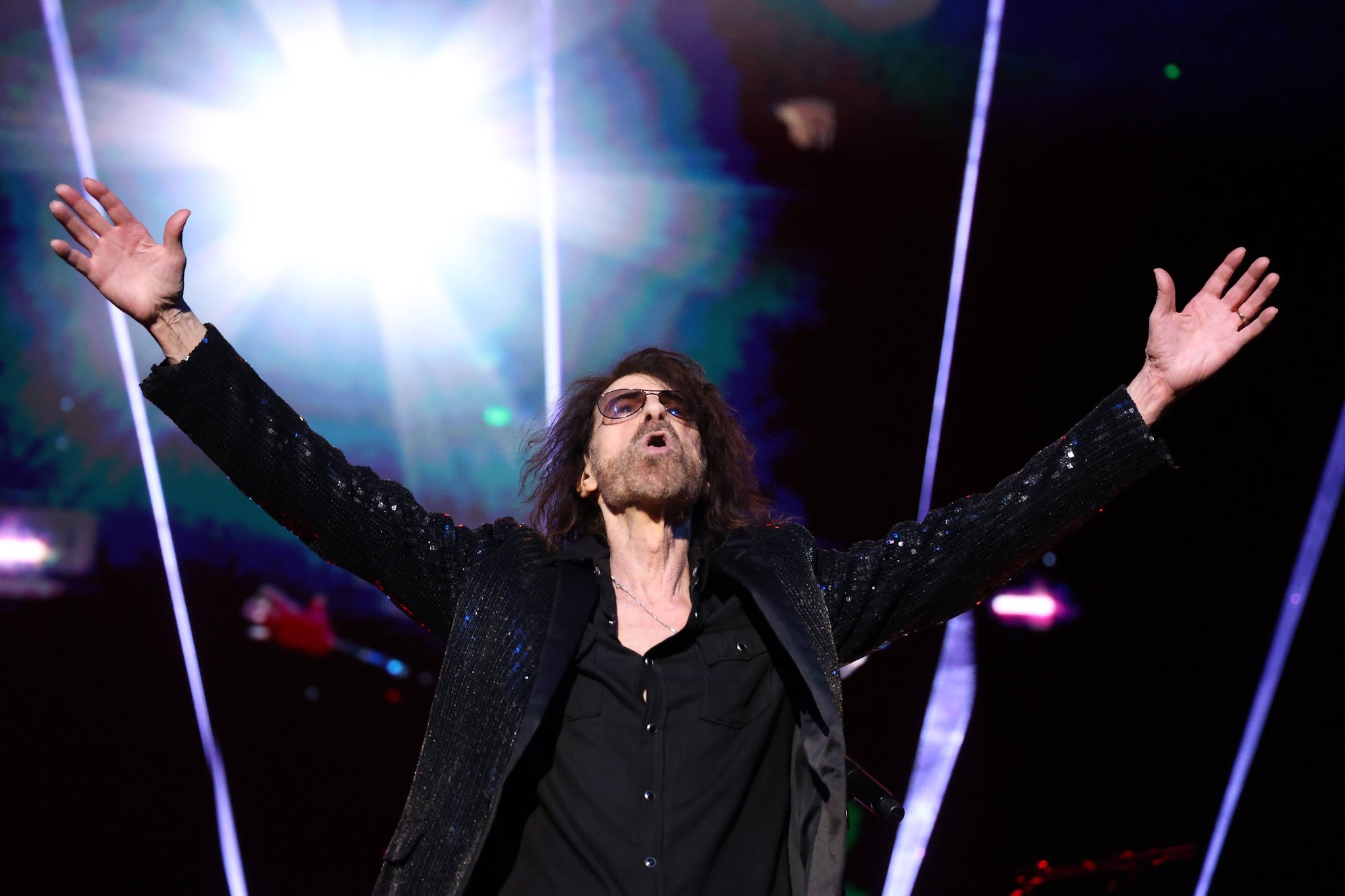
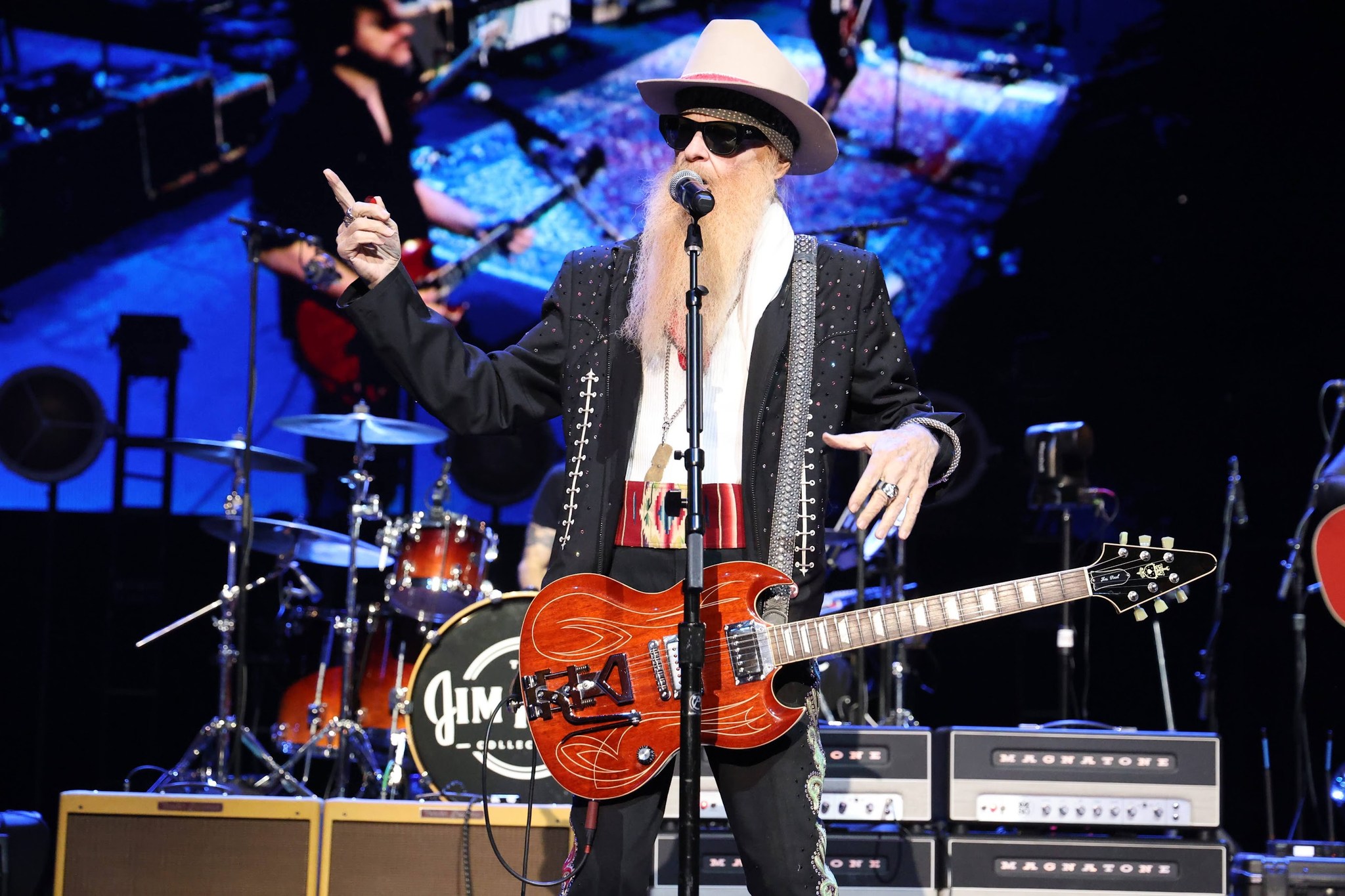
Throughout the night, a who's who of music royalty took the stage, including guest spots by Heart's Ann Wilson, J. Geils Band frontman Peter Wolf, and Z.Z. Top’s Billy Gibbons.
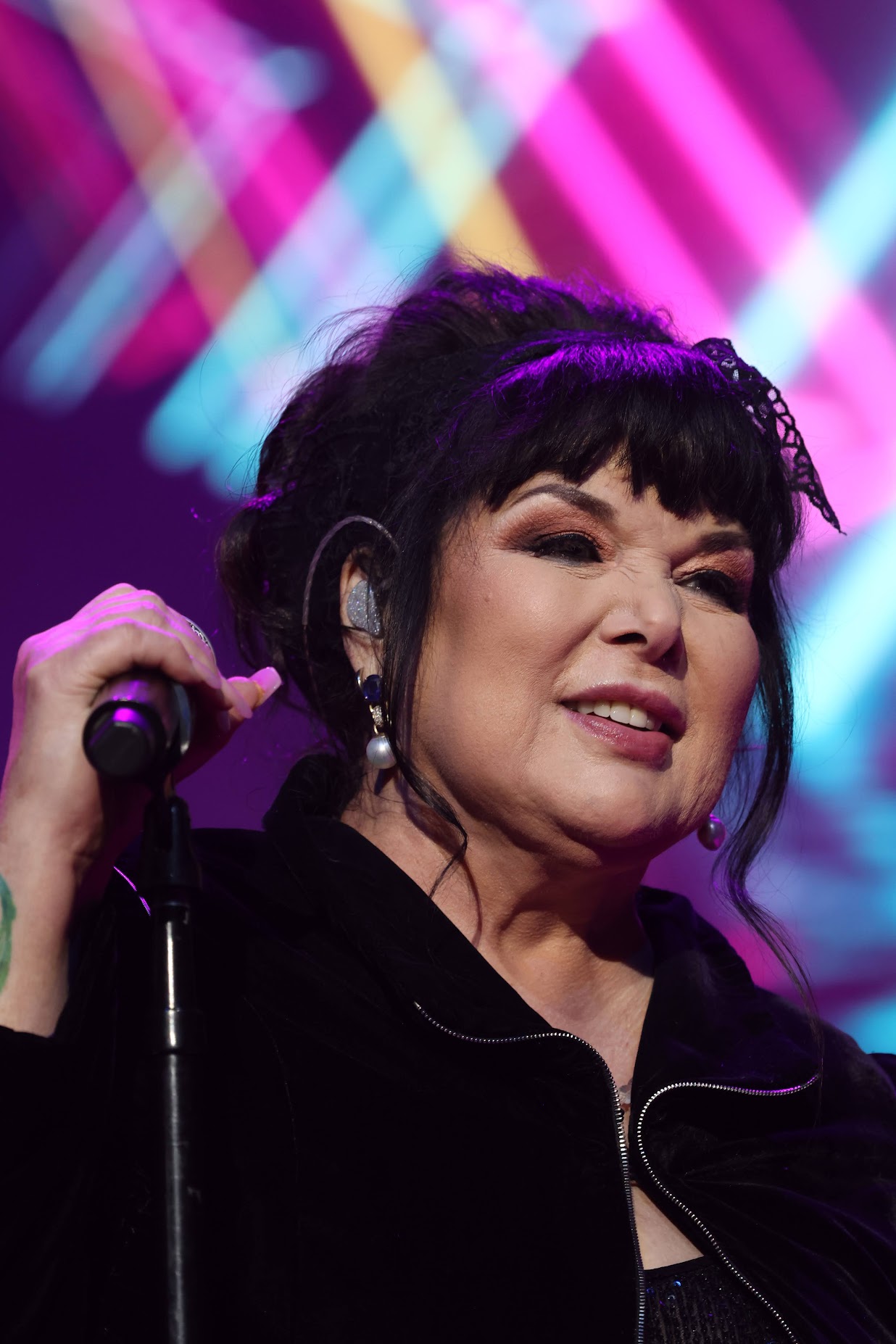
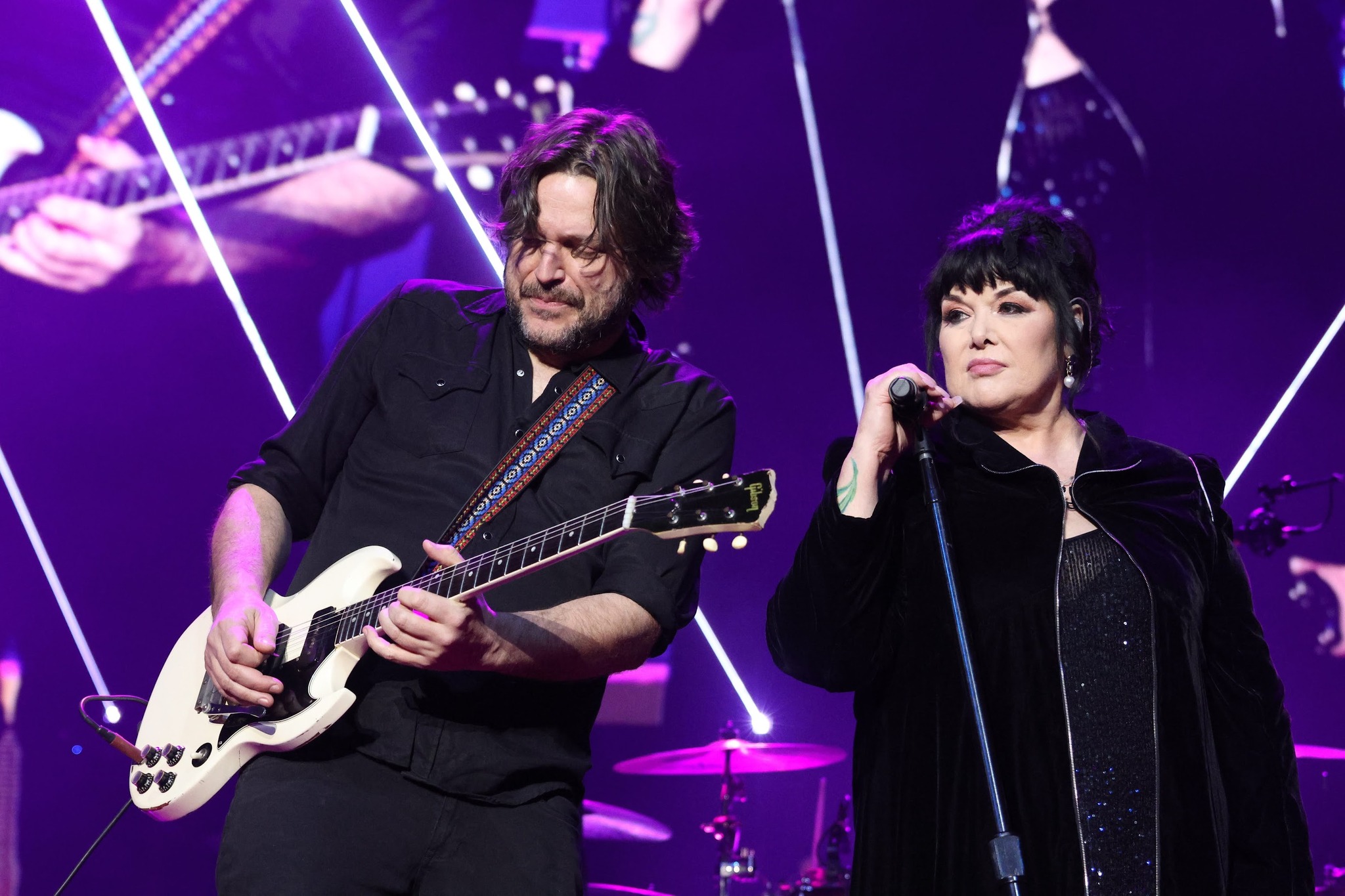
One of the night's most memorable moments came when Ann Wilson of Heart took the stage to deliver powerful renditions of The Who's "Love Reign o'er Me" and her band's "Barracuda." Wilson's soaring vocals perfectly matched the band's driving sound, and the crowd erupted in cheers.
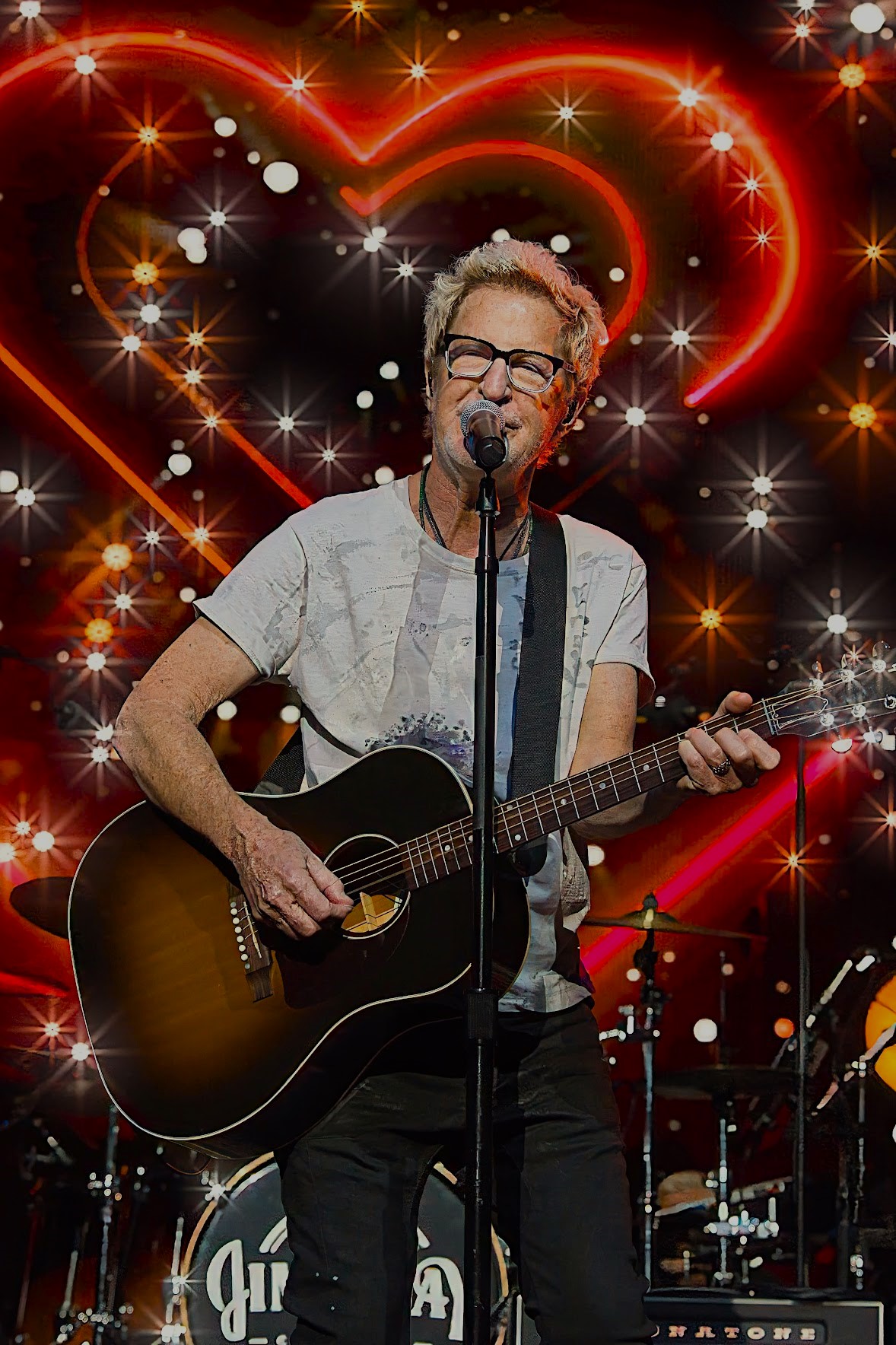
Then, the night became energized as two master frontmen took over lead vocals and cheerleading duties. The room thrummed with an electricity that only classic rock legends can conjure. Kevin Cronin, whose voice gave life to a generation's anthems, took the stage. Dressed in a sharp blue jacket that defied the passing years, he strummed the opening chords of "Take It On the Run," and the entire venue erupted. Hands pumped, heads nodded, and a collective grin spread across the crowd like wildfire. It was a time warp, every wrinkle and furrow smoothed away by the power of a song that still pulsed with youthful abandon. As vibrant as ever, Cronin soared through the lyrics, reminding everyone that chasing dreams never loses its charm.
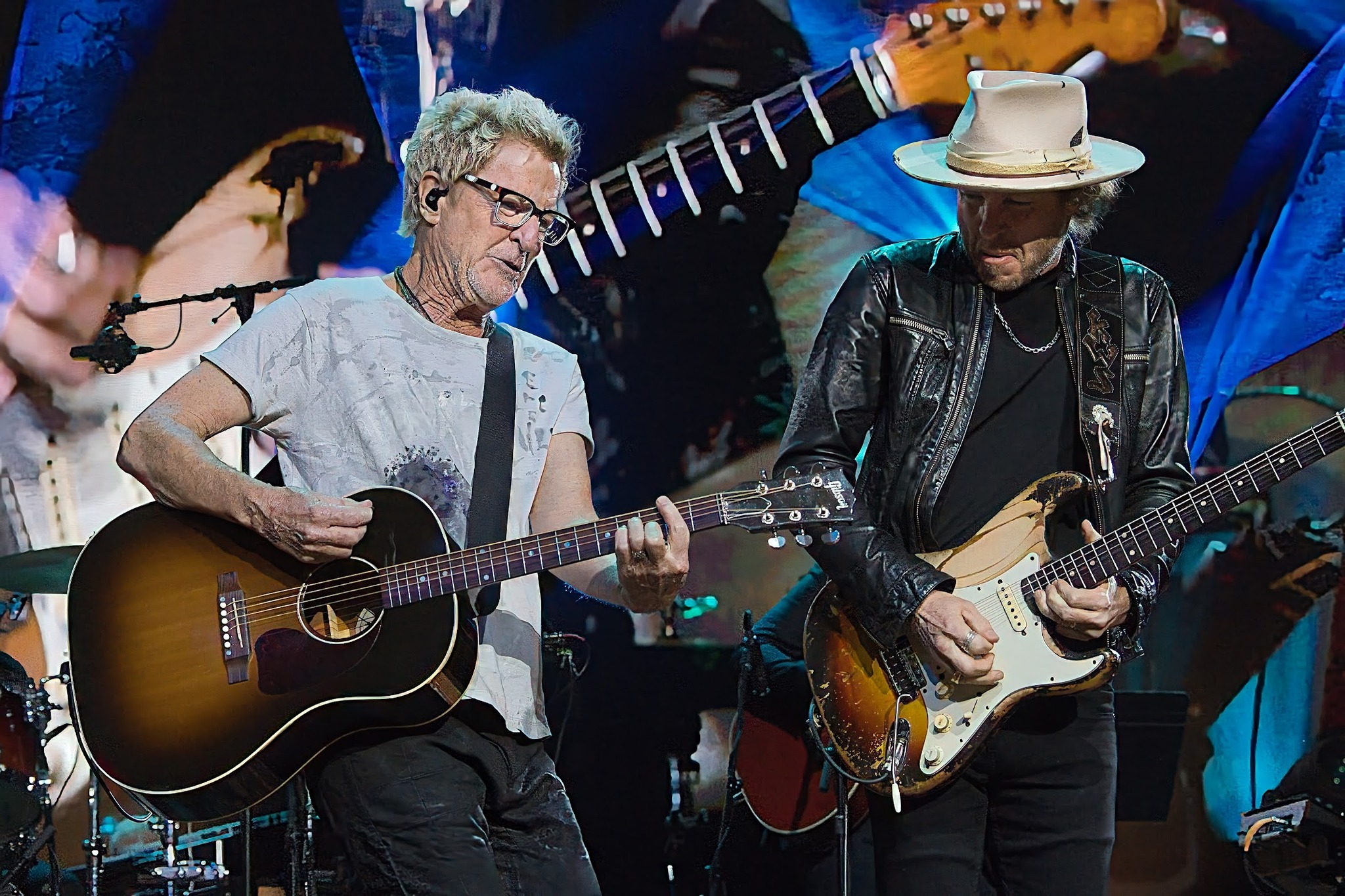
The energy barely paused before Cronin launched into "Can't Fight This Feeling," that irresistible ballad that defined countless slow dances and stolen kisses. Lighter flames flickered in the air, swaying in counterpoint to the swaying bodies. Some couples held each other close, eyes closed, lost in the melody, while others sang along, voices rough with shared nostalgia. It was a testament to the song's enduring power, how it could melt away the years and unite generations under a single emotional banner.
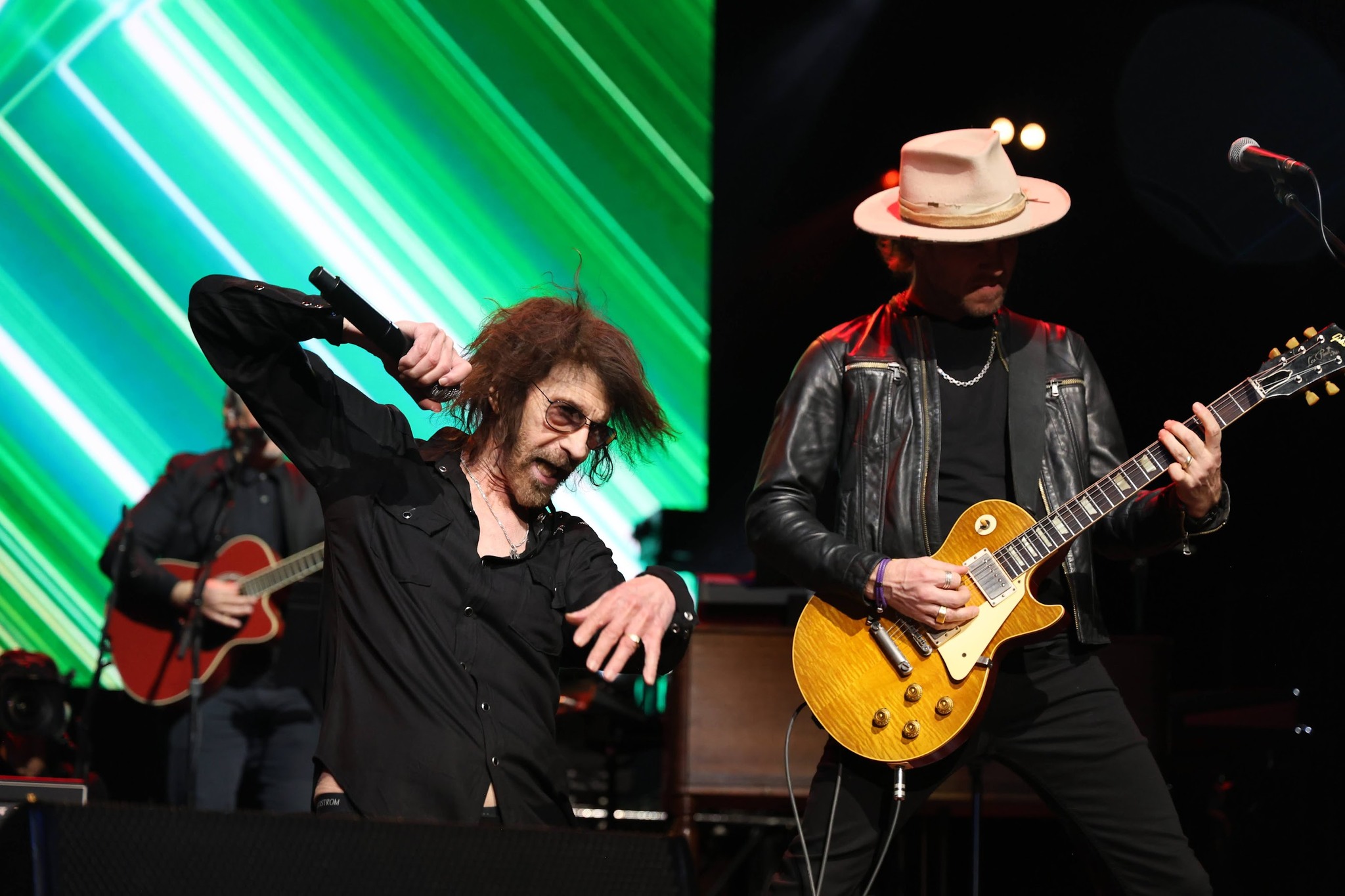
Then, with a flourish and a grin, Peter Wolf, the charismatic frontman of the J. Geils Band, strolled onto the stage. He was a whirlwind of leather, beads, and infectious energy, and the second he launched into "Centerfield," the crowd roared. It was a party now, an ode to summer nights and youthful swagger. Fists pumped in the air, mimicking the song's iconic guitar riff, and Wolf, a tireless rock and roll evangelist, encouraged the audience to sing along. It was a joyous cacophony, proof that some songs transcend age and circumstance, becoming touchstones of pure, unadulterated fun.
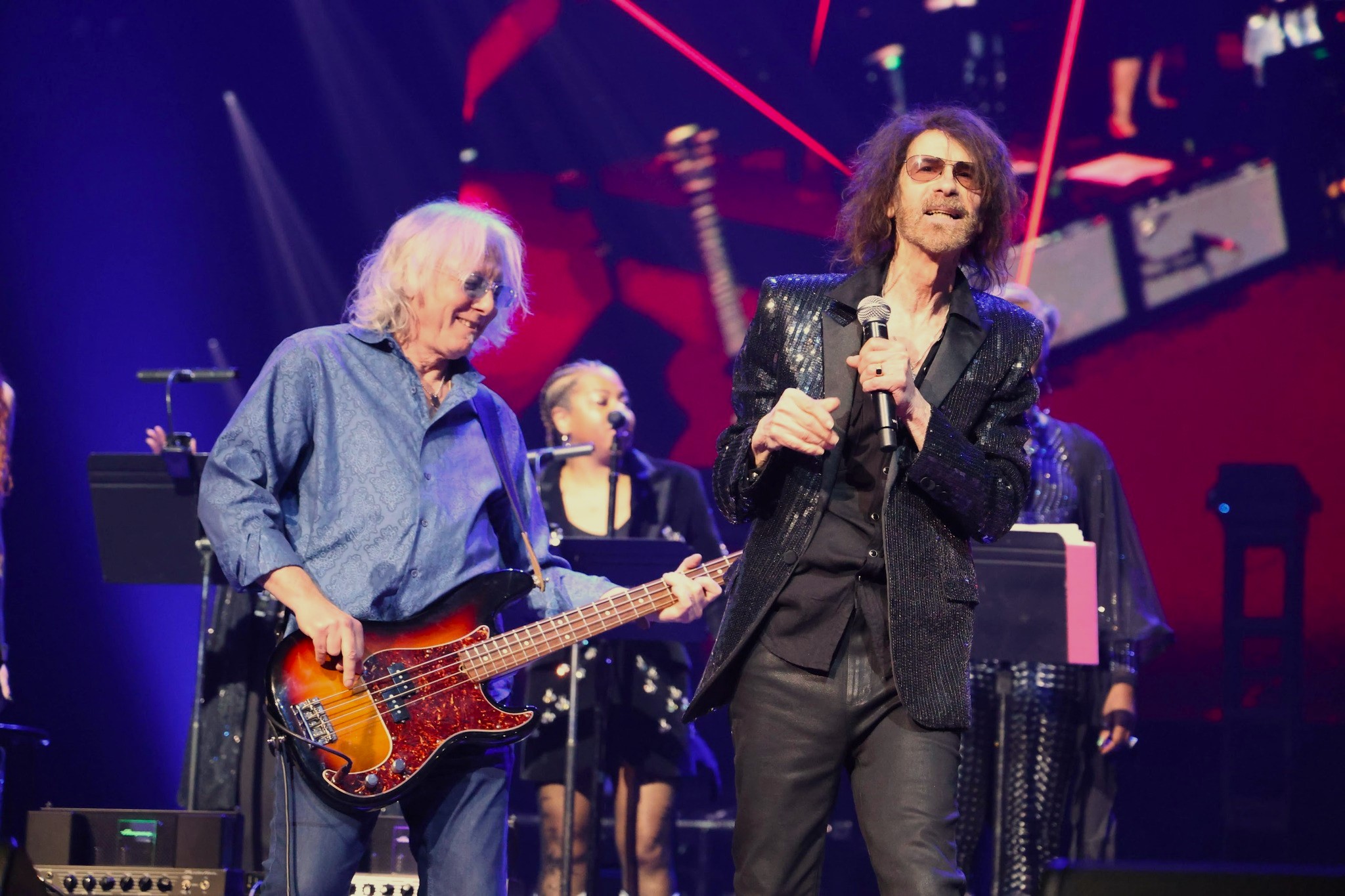
Finally, Wolf unleashed the ultimate party anthem, "Love Stinks." The beat slammed into the room, and the crowd, now thoroughly warmed up, went wild. It was a mosh pit of singalongs, air guitar solos, and uninhibited dancing. Wolf egged them on with a mischievous gleam in his eye, relishing the shared revelry. The room pulsed with sweat, laughter, and the raw, unfiltered joy of music's unifying power.
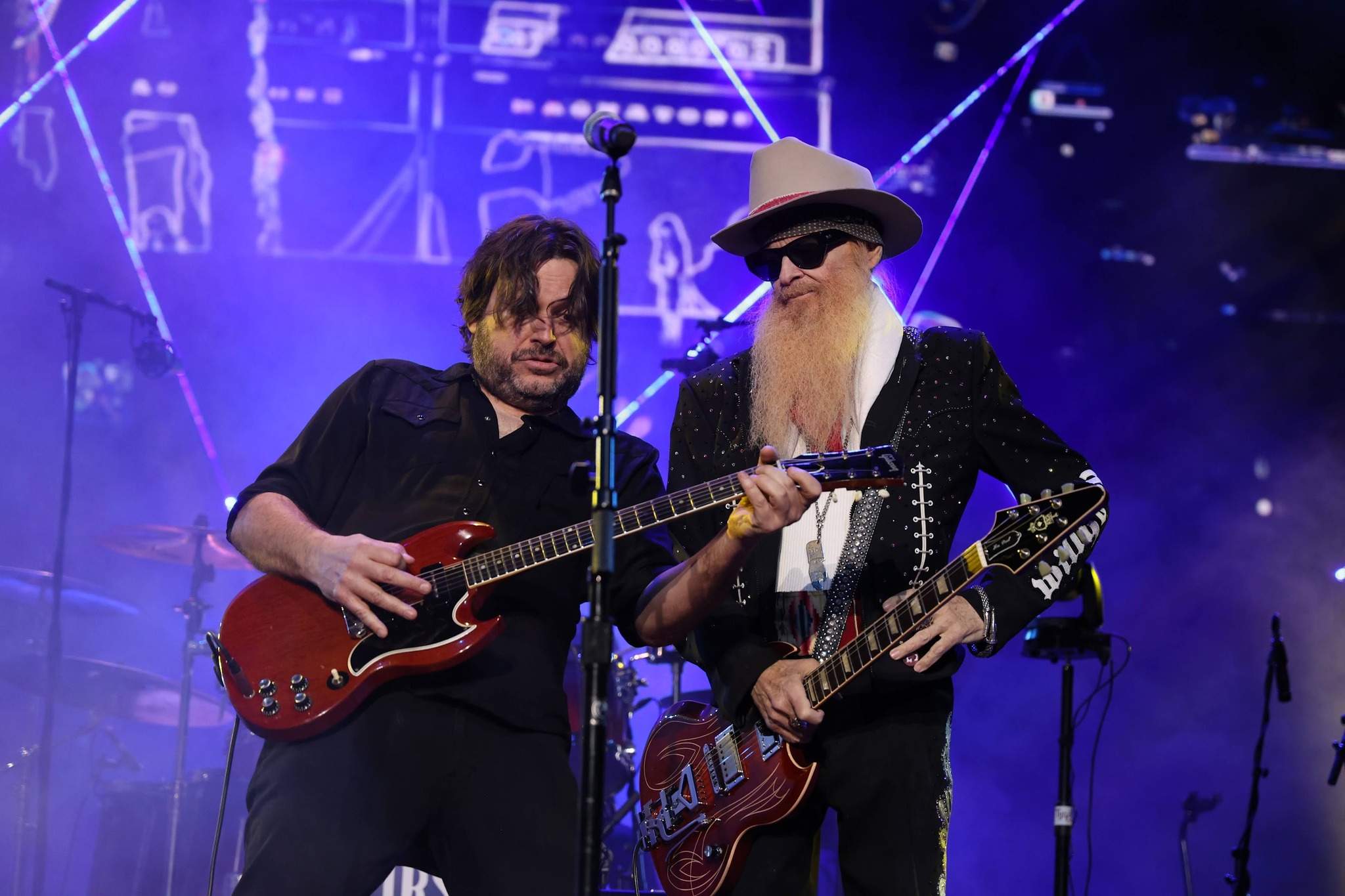
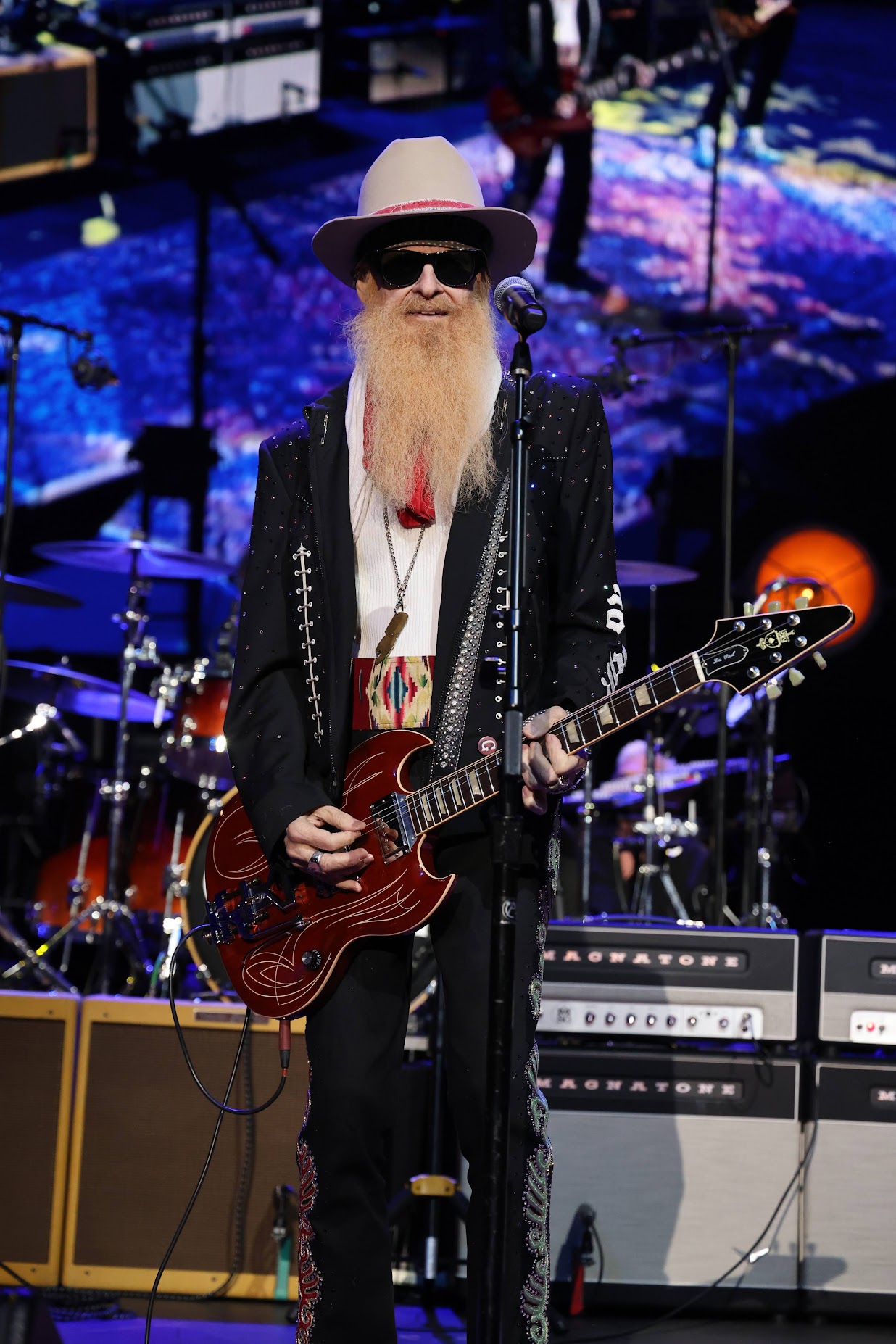
The night ended fittingly with a guitar-drenched set by Z.Z. Top's Billy Gibbons, who ripped through three of the band's signature blues-rock tunes. Gibbons led a guitar battle with his greasy slide guitar licks, bringing the packed auditorium to a frenzy, and the crowd left the show with a feeling of satisfaction that only comes from experiencing live music at its best.
